




































































































Welcome to the Hurst 2024 London Book Fair rights list.
On pp. 1-16 and pp. 35-52 you will find newly announced books not previously included in our rights submissions. In between those new titles, on pp. 17-34, are details of our recent language sale highlights, among them books sold into many languages. These include the prescient How to Fight a War, by Mike Martin; Z Generation, by Ian Garner, on Russia’s fascist youth movements; and Shrimp to Whale, by Ramon Pachedo, a brilliant short introduction to contemporary Korea and its culture.
From among our new titles I wish to draw your attention to the following:
* Who Will Defend Europe? by Keir Giles
* Islamesque: The Forgotten Craftsmen Who Built Europe’s Medieval Monuments, by Diana Darke
* Lithuania: A Short History, by Richard Butterwick
* A Twist in the Tail: How the Humble Anchovy Flavoured Western Cuisine, by Chris Beckman
* Zero Sum: The Arc of International Business in Russia, by Charles Hecker
* Humanitarianism 2.0: New Ethics for the Climate Emergency, by Hugo Slim The Hurst rights team has also grown. Assisting me with foreign language, audiobook and English sub-rights deals are Rubi Kumari (rubi@hurstpub.co.uk) and Jess Winstanley (jess@hurstpub.co.uk). You can also contact us at rights@hurstpub.co.uk Meanwhile, best wishes to you all and thanks for your support over the years.
Sincerely
Michael Dwyer (Publisher)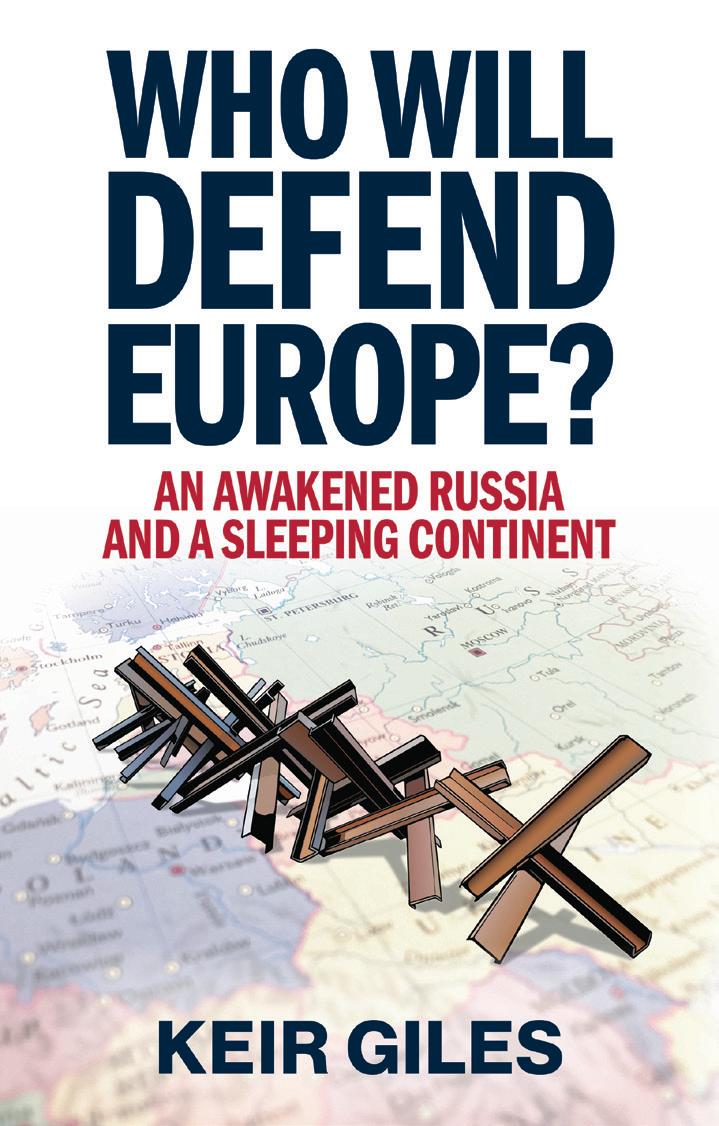

November 2024
9781911723486
216mm x 138mm
280pp
£20.00 Hardback
International Relations / European Studies / War Studies
World rights
Who will defend Europe? The answer should be obvious: Europe should be able to defend itself. Yet, for decades, most of the continent enjoyed a defence holiday, outsourcing protection to the United States while banking an increasingly illusory ‘peace dividend’. Now, after three decades of reducing armed forces and drawing down defence industries, Europe finds itself close to unprotected—while Russia is intent on continuing its war of expansion, and the US is distracted and divided.
In this urgent, vital book, Keir Giles lays out the stark choices facing leaders and societies as they confront the return of war in Europe. He explains how the West’s unwillingness to confront Russia has nurtured the threat, and that Putin’s ambition puts the whole continent at risk. He assesses the role and deficiencies of NATO as a guarantor of hard security, and whether the EU or coalitions of the willing can fill the gap. Above all, Giles emphasises the need for new leadership in defence of the free world after the US has stepped aside— and warns that the UK’s brief moment of setting the pace for Europe has already been squandered.
Europe is sleepwalking into disaster. Who will rouse it to face the Russian threat?

Keir Giles has advised governments worldwide on the Russian threat. A senior fellow with Chatham House’s Russia and Eurasia Programme, and Director of the Conflict Studies Research Centre, he is a regular commentator for the BBC and international media. His prescient books include What Deters Russia and Moscow Rules.
Shortlisted for the A+C Book Award
‘An exhilarating, meticulously researched book.’
— The Guardian
‘Another brilliant challenge to Islamophobes everywhere, showing how much Gothic architecture drew on the forms and innovations of Arab architects and mathematicians.’ — William Dalrymple, The Spectator
‘Persuasive … argues that northern Europe’s greatest gothic buildings are deeply indebted to the Arab world … a useful reminder of the interconnectedness of civilisation.’ — The Observer
‘Fascinating … Revelatory [and] eye-opening.’
— Los Angeles Times
‘Extraordinarily ambitious … part cri de coeur and part textbook on Islamic architecture and its influence on the West.’ — The Times Literary Supplement
‘Intriguing and eye-opening.’ — Asian Review of Books
‘Original and enlightening.’ — Venetia Porter, The British Museum
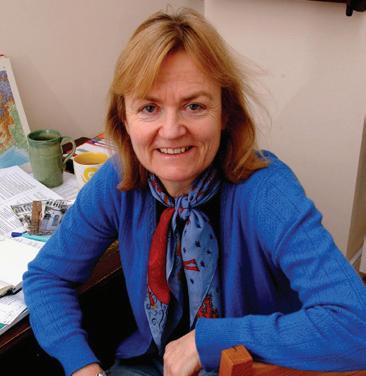
Diana Darke has spent four decades in the Middle East. Her books include Islamesque (forthcoming from Hurst), My House in Damascus and The Ottomans. A non-resident scholar at Washington DC’s Middle East Institute, she holds degrees in Arabic and in Islamic Art and Architecture.
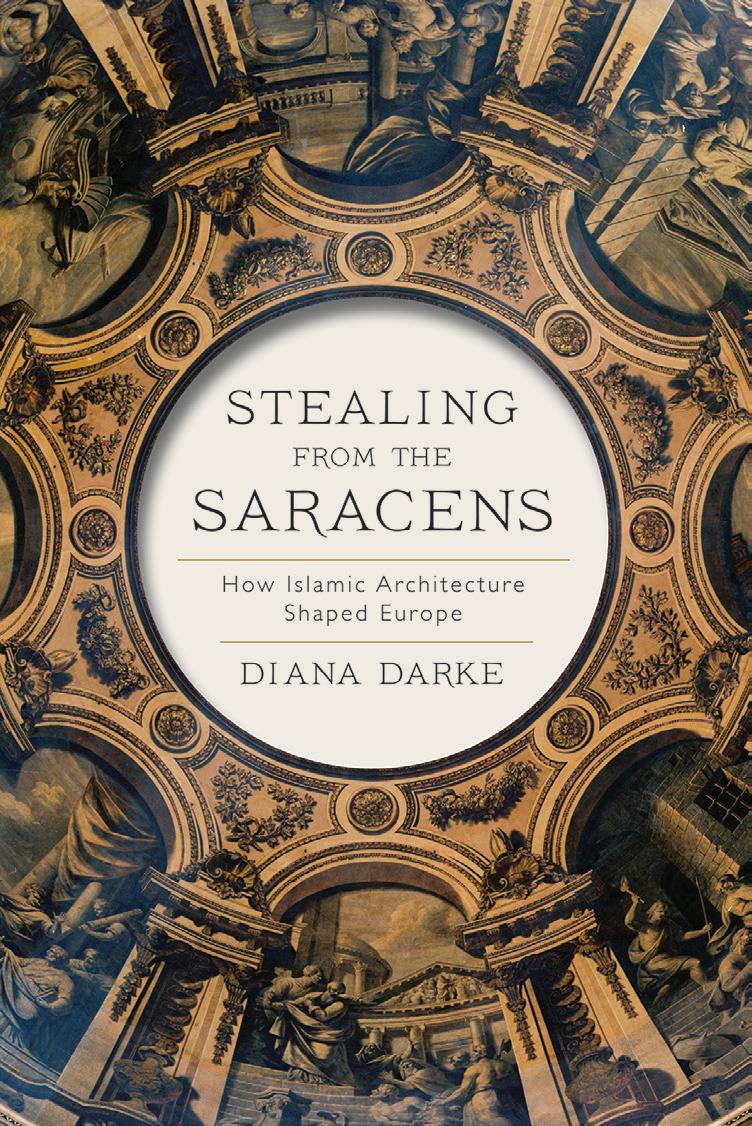

May 2024
9781911723479
234mm x 156mm
480pp, 152 colour illus £17.99 Paperback History / Architecture World rights excluding the Arabic & Turkish languages
A revealing history of Islamic architectural influence on Europe’s cathedrals, palaces and monuments.
‘Darke writes … with love, clarity and authority.’
— Michael Palin
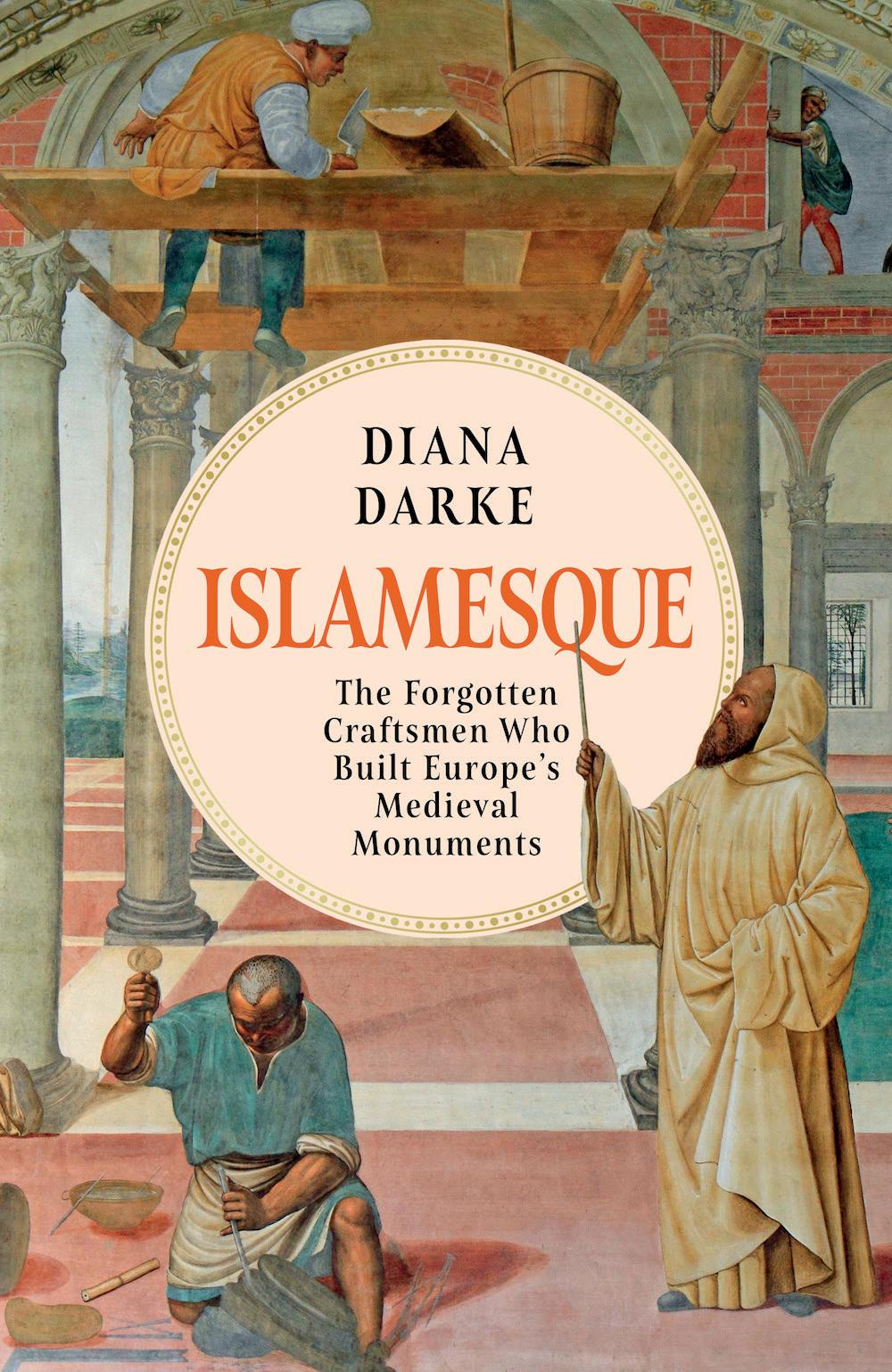

November 2024
9781805260974
234mm x 156mm
480pp, 150 colour illus
£25.00 Hardback History / Architecture World rights
DIANA DARKEWho really built Europe’s finest Romanesque monuments? Abbots and bishops presiding over holy sites receive mentions aplenty throughout history, while their highly skilled creators remain anonymous. But the buildings speak for themselves.
In this groundbreaking book, Middle East cultural historian Diana Darke explores the evidence embedded in medieval monasteries, churches and castles across Europe, from Mont Saint-Michel and the Leaning Tower of Pisa to Durham Cathedral and the Basilica of Santiago de Compostela. Tracing the origins of key decorative and architectural innovations during this pre-Gothic period—acknowledged as the essential foundation of all future European construction styles—she sheds new light on the mystery masons, carpenters and sculptors behind these masterpieces.
A fascinating exploration of Europe’s medieval architectural wonders— and the Muslim masterbuilders behind them.
Her discoveries are dramatic. At a time when Christendom lacked such expertise, Muslim craftsmen, with their advanced understanding of geometry and complex ornamentation styles, dominated the high-end construction industry in Islamic Spain, Sicily and North Africa, spreading their knowledge and techniques across Western Europe. Challenging Euro-centric assumptions about the continent’s built heritage, Darke uncovers the profound influence of the Islamic world in ‘Christian’ Europe, and argues that ‘Romanesque’ architecture, a fiction first invented by nineteenthcentury French art historians, should be recognised as what it truly is: Islamesque.
By the same author:
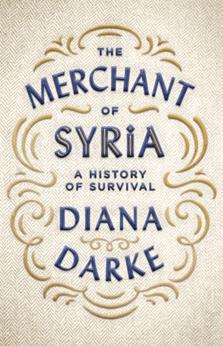

9781849049405
£25.00 hb
Available now
Between the end of the Second World War and the first decades of the twenty-first century, Britain became multicultural. This book tells the remarkable story of how that came about. Kieran Connell, an historian of Irish and German heritage who grew up in Balsall Heath, innercity Birmingham, takes readers into multicultural communities across Britain at key moments in their development. He also shines a light on the shifting nature of British racism, revealing the day-to-day effects it had—and still has—on ethnic minority groups.
Journeying far beyond London, Multicultural Britain delves into the messy contradictions at the heart of a country’s transition into the diverse society we know today. It highlights the vital role of ordinary people in the making of multicultural Britain, and takes aim at public leaders, from Enoch Powell to Harold Wilson to Margaret Thatcher, who have too often legitimised racism for their own political ends.
In post-Brexit Britain, between Black Lives Matter and anxieties around immigration, how communities and individuals live together remains one of the most urgent issues of our time. Connell offers a fresh perspective on British multiculturalism as a rich and complex lived reality—not simply as a problematic idea.
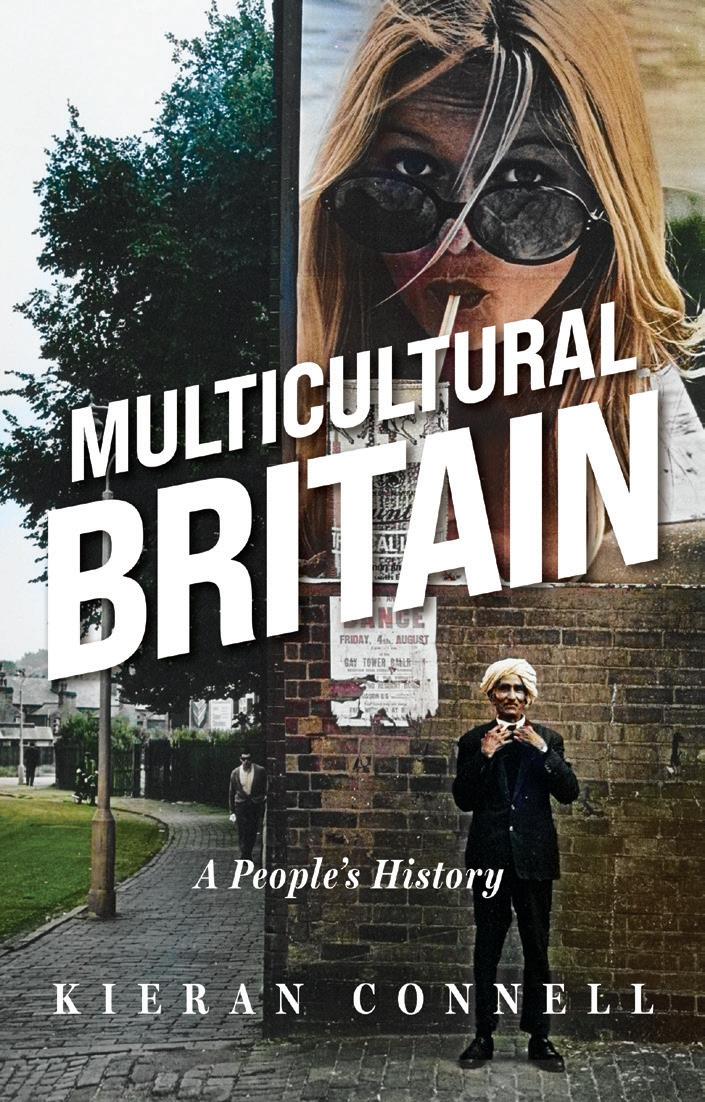

August 2024
9781911723516
216mm x 138mm
428pp, 20 b&w illus £25.00 Hardback Sociology / History World rights
A new history of how we became multicultural, revealing the personal and community relationships that underpin Britain’s post-imperial transition.
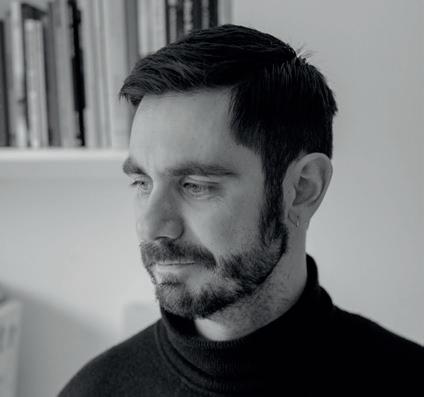
Kieran Connell is a writer and historian based at Queen’s University Belfast. His first book, Black Handsworth: Race in 1980s Britain, was shortlisted for the Whitfield Book Prize.
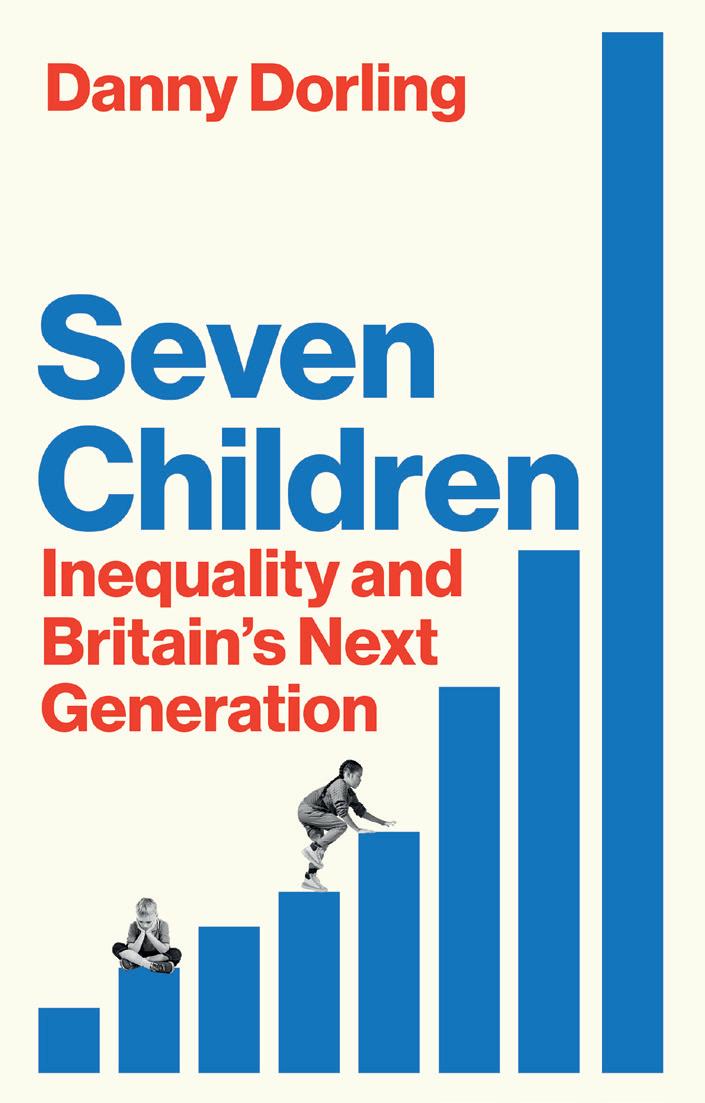

August 2024
9781911723509
216mm x 138mm 320pp
£14.99 Paperback Current Affairs / Sociology / Economics World rights
Suppose you chose seven typical children to represent today’s UK. Who would they be? What would they reveal?
Seven Children is about hidden realities of injustice and hope. In his highly original, thoughtprovoking new book, inequality writer Danny Dorling constructs seven ‘average’ children from millions of statistics—each child symbolising the very middle of a parental income bracket. From the poorest to the wealthiest, Dorling’s seven children were born in 2018, when the UK faced its worst inequality since the Great Depression and became Europe’s most socially divided nation. They turned 5 in 2023, amid a devastating costof-living crisis. Their country has Europe’s fastestrising child poverty rates, and even the best-off of the seven is disadvantaged. Yet aspirations prevail, and change is possible.
We are all getting poorer. What does that reality look like for British children, and for their future life chances?
Immersive and intimate, this book gets to the heart of post-pandemic Britain’s most pressing economic, social and political issues. What do we miss when we focus only on the superrich and the most deprived? What kinds of lives are British children living, between those two extremes? Who are today’s real middle class? And what if tomorrow’s challenge isn’t spiralling inequality, but how to reverse the new trend that leaves all children worse off than their parents?

Danny Dorling is a social scientist whose books include Inequality and the 1% and All That Is Solid. He is the Halford Mackinder Professor of Geography at the University of Oxford, and a patron of RoadPeace, Comprehensive Future and Heeley City Farm. In his spare time, he makes sandcastles.
On 19 September 2023, war broke out once again in Nagorno-Karabakh, a tiny breakaway state nestled in the mountains at the very edge of Europe.
For three decades since the fall of the Soviet Union, this battle-scarred geopolitical hotspot had been fought over in a bloody standoff that left tens of thousands dead and as many as a million people homeless. This time, though, things were different. Within 24 hours, Armenian forces surrendered in the face of an overwhelming Azerbaijani offensive, as Russian peacekeepers abandoned their positions—and the entire local population packed their bags to flee.
Through the eyes of ordinary Armenians and Azerbaijanis, Gabriel Gavin chronicles how Nagorno-Karabakh went from an ancient home shared by both peoples to a land of empty houses and untended graves, as the world looked on.
Ashes of Our Fathers offers unprecedented insight not only into a simmering ethnic conflict inside the Kremlin’s self-declared sphere of influence, but into the lives, loyalties and national ideas of the people caught up in the chaos; and into the decisions, from Yerevan and Baku to Moscow and Washington to Tel Aviv and Tehran, that led directly to one of the worst humanitarian catastrophes of the 2020s.

Gabriel Gavin is a journalist and writer from Oxford, England. He has covered the politics and foreign affairs of the former Soviet Union and Turkey as a reporter for Politico, as well as for outlets including Time, Foreign Policy and The Spectator. This is his first book.
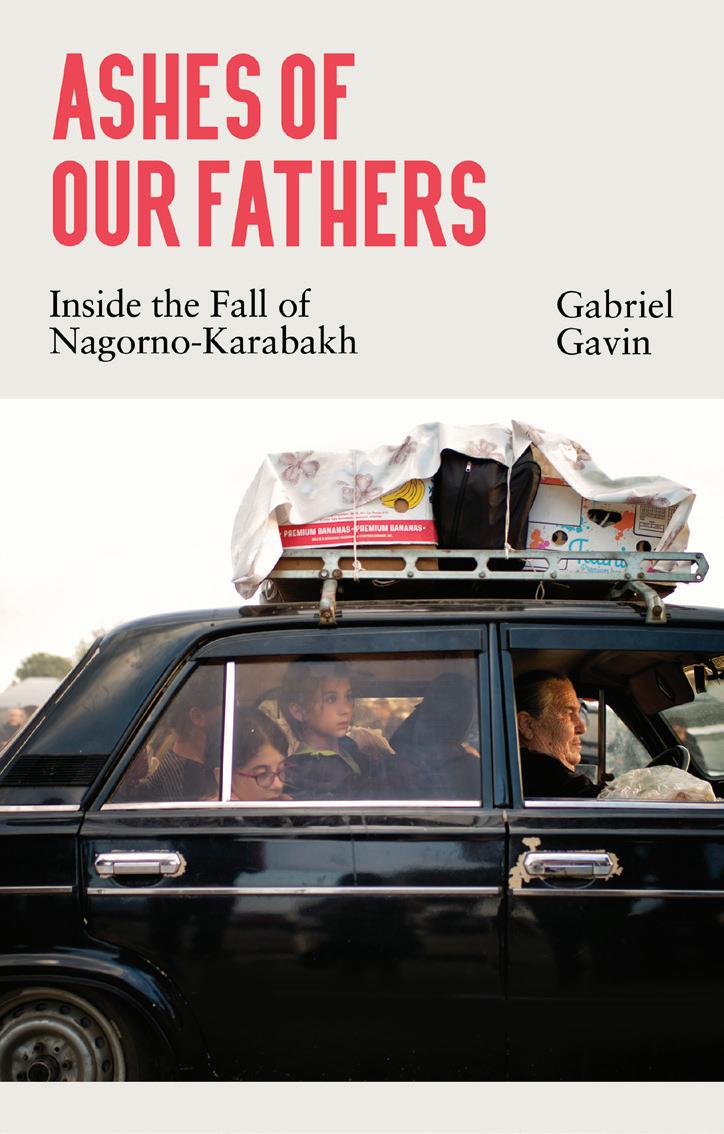

January 2025
9781911723578
216mm x 138mm 280pp
£20.00 Hardback
Current Affairs / Eurasia / Conflict World rights
Vivid reportage from a war at the edge of Europe, between two ancient peoples caught up in great power interests and clashing narratives of home.
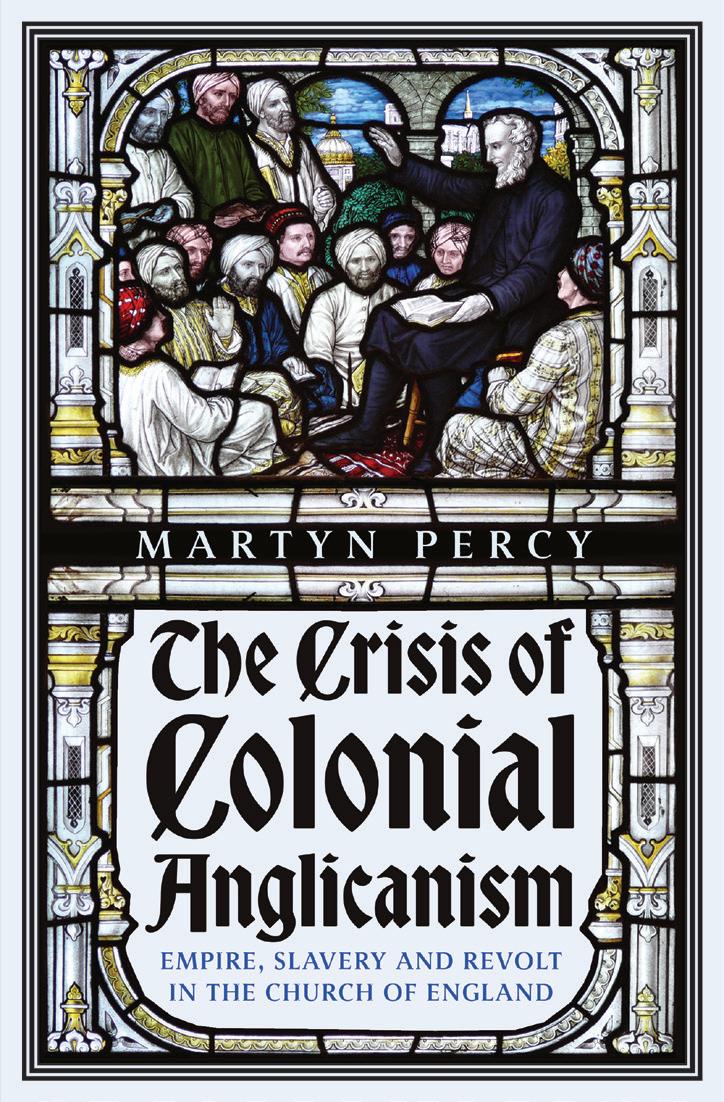

January 2025
9781911723585
216mm
£25.00
This book offers a fresh, bold and unsettling truth: the British Empire and Great Britain are primarily English constructions; and the Church of England has presumed to act for and benefit from English enterprise and exploitation, serving as the spiritual arm of the imperial project. English Anglicanism has developed itself as the lead character within its own ‘serious fiction’—the main religious player in a drama of Church and Empire. Yet, in collusion with colonialism, it is now a prisoner of its own historical amnesia.
Martyn Percy examines the English interests concealed in appeals to Britishness, and shows how slavery, exploitation, classism and racism played their part in the elitist and hierarchical worldviews propagated by the English to bolster both Empire and Church. Yet, by regarding the rest of the world as lesser, both institutions have slowly degenerated in global standing. Now, ‘Britain’ and the Church of England are no more than minor national players on the world stage.
A hard-hitting critique of the Church of England as a social, spiritual and financial driver and beneficiary of the British Empire.
Religious, social and political imperialism are founded on the deprecation of others. Yet those peoples who were once looked down upon have fought for equality and independence. Today, the worldwide Anglican Communion faces a new era of moral reckoning.

Martyn Percy is ProvostTheologian for Hong Kong Sheng Kung Hui; Senior Research Fellow at the James Hutton Institute; and Honorary Fellow at the Universities of Edinburgh, London and Oxford. He has written for The Guardian and The Times, and is the only living theologian featured in The Da Vinci Code.
When the hammer and sickle flag came down at the Kremlin at the end of 1991, a feverish new market opened for business: Russia. In 2022, as soon as Putin’s troops invaded Ukraine, that market started to collapse, as Western firms fled the skyscrapers of Moscow and beyond.
No other country of this scale has transformed itself so dramatically, so quickly—not just once, but twice. Over three turbulent decades, a wild, proto-capitalist free-for-all came seductively close to becoming a predictable place to do business. And then it all unravelled. Russia’s post-Soviet years have seen phenomenal successes, crushing failures, and the creation and destruction of enormous fortunes. How did it all happen?
Charles Hecker tells the gripping, three-act story of international business in Russia since the fall of the USSR. What have global companies learnt—or failed to learn—about Russia over the course of this adventure? And beyond Russia, what do we now understand about the way countries and companies interact in the face of relentless change? Zero Sum brings to life the complexity, the nuance and the vivid colour of one of the greatest experiments in the history of global commerce.
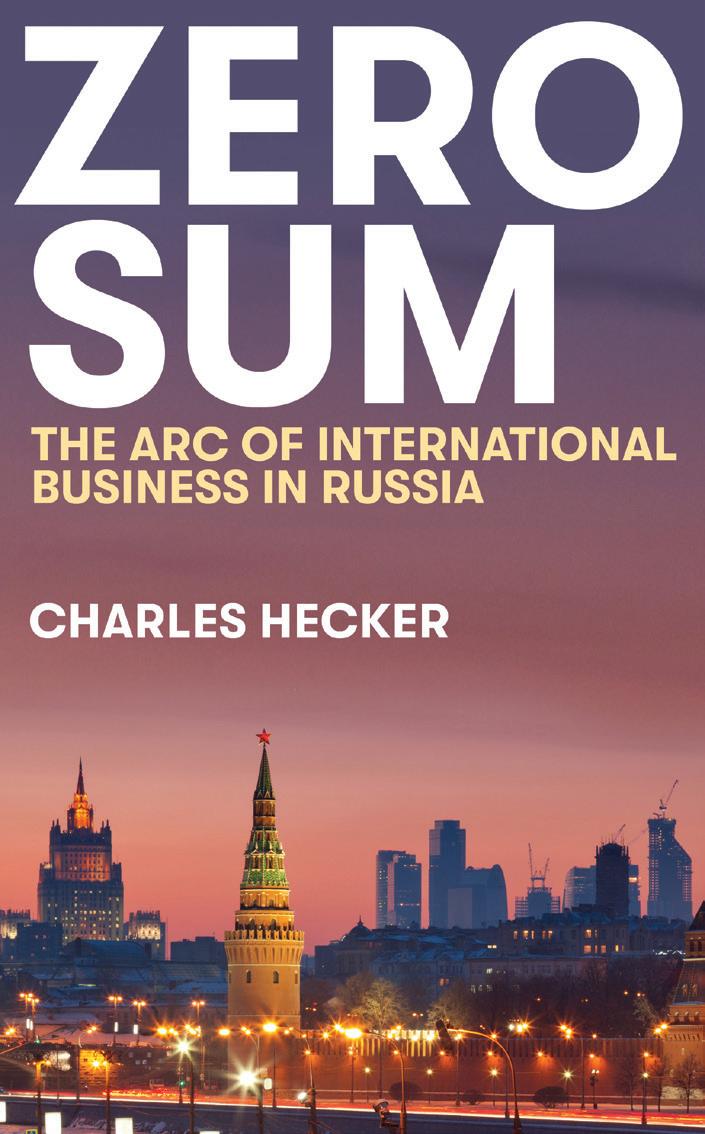

November 2024
9781911723561
216mm x 138mm
352pp
£25.00 Hardback
Current Affairs / Business / Russia
World rights

Charles Hecker has spent forty years travelling and working in the Soviet Union and Russia. He has worked as a journalist and a geopolitical risk consultant, and has lived in Miami, Moscow and London. A fluent Russian speaker, he holds degrees from the University of Pennsylvania and Harvard University.
In the series NEW PERSPECTIVES ON EASTERN EUROPE & EURASIA
Edited by Dr Ben Noble

An insider’s account of the rise and fall of Western business ventures in post-Soviet Russia.
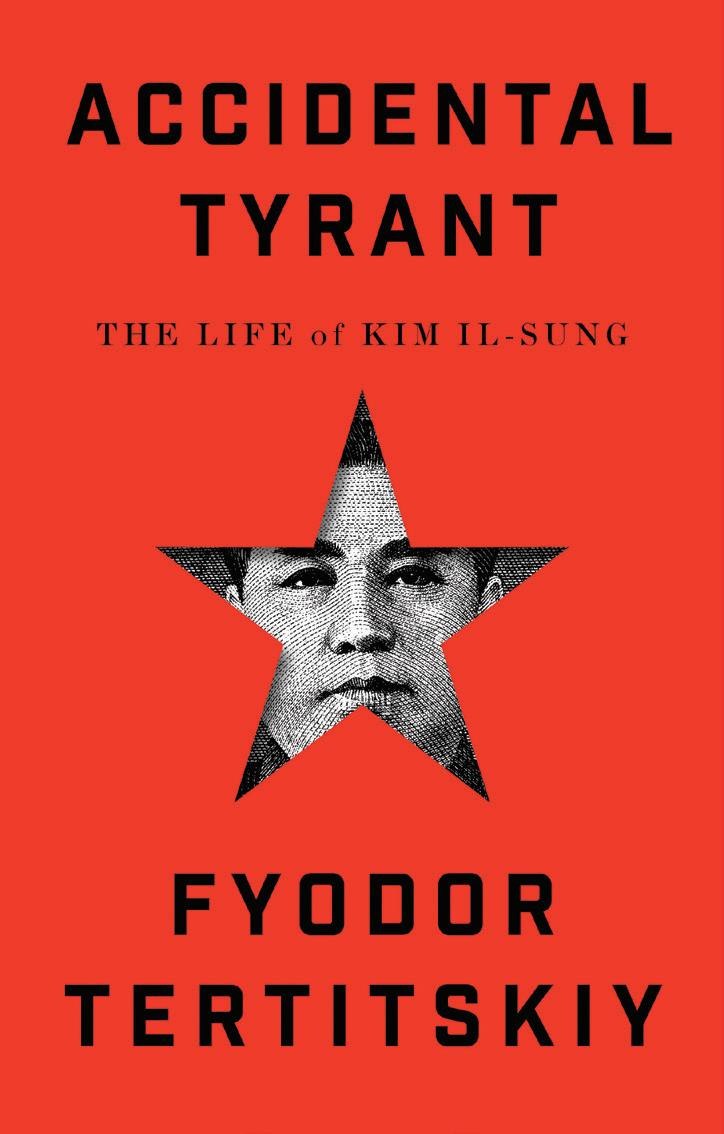

January 2025
9781911723547
216mm x 138mm
352pp, 50 b&w illus
£25.00 Hardback
Biography / East Asia
World rights excluding the Korean & Russian languages
Kim Il-sung was the enigmatic architect of North Korea. His life is an extraordinary tale of improbable success: once a barely educated guerrilla fighter, he rose to lead the nation at the young age of 33. Against all odds, he established a horrifyingly stable dictatorial regime, one that still struggles to provide for its people, yet could obliterate Hollywood, Silicon Valley and much of East Asia in nuclear strikes.
Based on extensive new sources in Korean, Russian, Chinese and Japanese, Fyodor Tertitskiy tells the unlikely story of one of the twentieth century’s most brutal but little-known dictators, from his early life in Japanese Korea to the lasting repercussions of his autocratic rule today. Tertitskiy showcases Kim’s political prowess in gaining autonomy from the USSR; explores how his inept economic policy led to catastrophic famine; and highlights how he implemented a system of hereditary rule, paving the way for today’s ‘Supreme Leader’, Kim Jong-un, to assume power and continue his grandfather’s vision.
A masterful new biography of North Korea’s despotic founding father and his enduring impact on his country today.
Accidental Tyrant serves as a stark cautionary tale, underscoring that the triumph of liberty is never guaranteed. Met with insufficient resistance, even the most unlikely leader can build a regime of repression and privation that long outlives its founder.

Fyodor Tertitskiy has been living in South Korea for more than a decade, where he researches North Korean political, social and military history. He has authored several books in English and Korean, including Soviet–North Korean Relations During the Cold War and The North Korean Army: History, Structure, Daily Life.
A Twist in the Tail takes readers on a tantalising voyage through European and American gastronomic history, following the trail of a small but mighty fish: the anchovy.
Whether in ubiquitous Roman garum , massproduced British condiments, elaborate French haute cuisine or modern Spanish tapas, anchovies have been enhancing the flavour of many dishes for thousands of years. Yet, depending upon the time and place—and who was eating them—they have also been disdained as worthless little fish, deemed too small, bony and inconsequential for popular or elite consumption. From Western Europe to the USA, Christopher Beckman shows how the evolving and ambiguous status of anchovies provides surprising insights into the relationship between food, class and status throughout history.
Drawing on cookbooks, literature and art, this is the hidden story of the diminutive anchovy, and its outsized role in shaping the West’s cuisine.
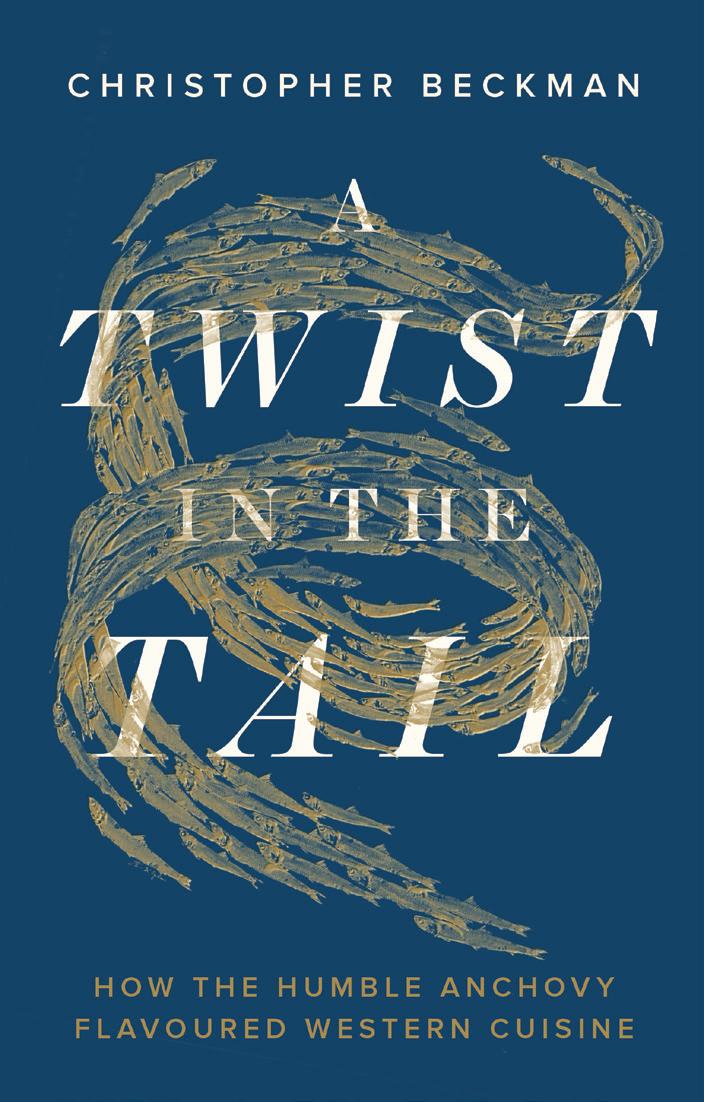

July 2024
9781911723417
216mm x 138mm
368pp, 38 b&w illus
£18.99 Hardback Food & Drink / History World rights
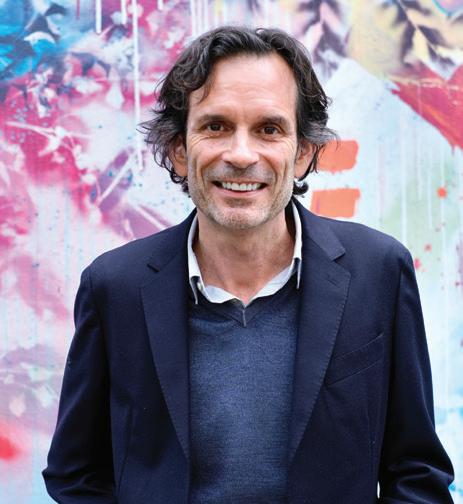
Christopher Beckman was born in San Francisco and has a doctorate in Archaeology. Based in Geneva, his research focuses on the links between material culture and subsistence patterns. He has lived in the Middle East and Africa, with a stint in Hollywood producing horror films. This is his first book.
A captivating culinary journey through the West’s love-hate relationship with anchovies.
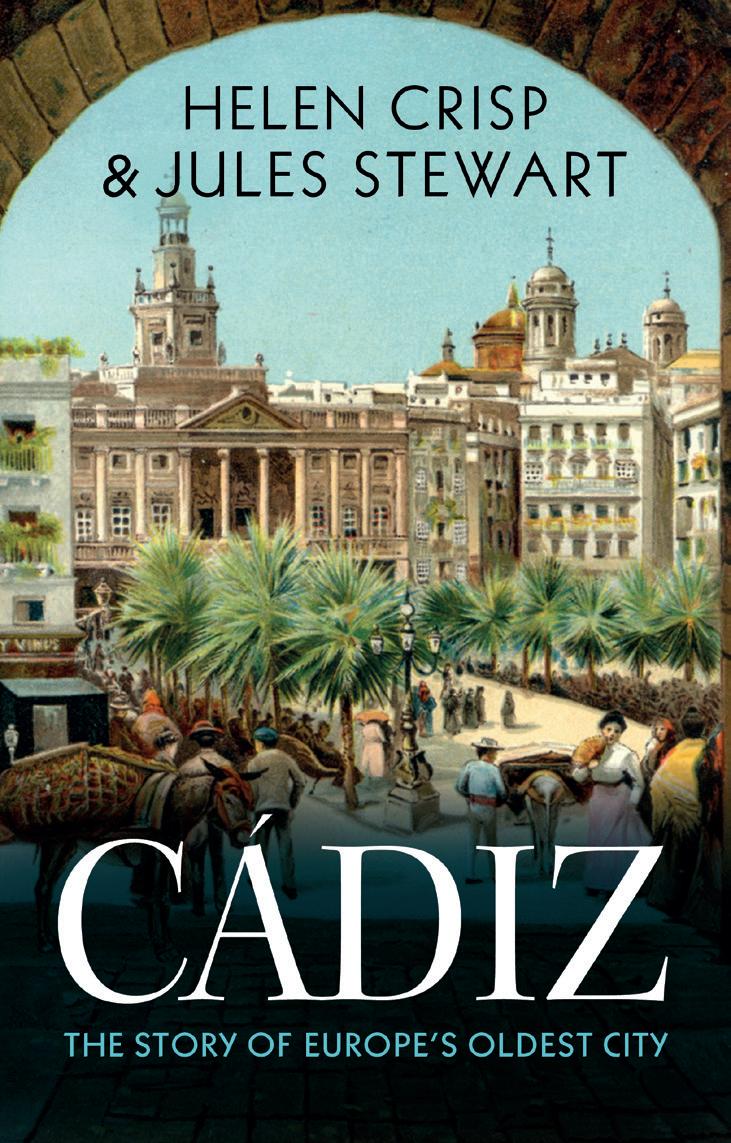

November 2024
9781911723615
216mm x 138mm
324pp, 60 colour illus
£25.00 Hardback
History / Europe World rights
This is the tale of Western Europe’s oldest continuously inhabited city, a 3,000-year history of war and seafaring, culture and commerce, liberalism and resistance.
Helen Crisp and Jules Stewart offer a vibrant account of Cádiz past and present, from its ancient founding myths to its reinvention as a trendy tourist destination. They illuminate Cádiz’s experiences under Roman and Moorish rule; explore its centuries of maritime warfare, from Francis Drake to the Battle of Trafalgar; and probe its role in Spain’s ‘Golden Age’ of empire, when it dominated trade with the New World. As Spain’s de facto capital during the Peninsular War, Cádiz also produced Europe’s first liberal constitution in 1812. And in 1936, it was the port of entry for Franco’s troops, mustered to overthrow the Republic.
Cádiz has excited the passions of travellers for centuries. Lord Byron was enchanted by the ladies of the city, whom he described as ‘form’d for all the witching arts of love’. Benjamin Disraeli fell in love with Cádiz in 1830, seeing ‘Figaro in every street and Rosita in every balcony’. This beautifully illustrated book, the first to tell the full story of this intriguing and extraordinary city, brings its past to life.
A captivating portrait of an overlooked Andalusian gem.
Helen Crisp is fascinated by Spain’s history, landscapes and lesser-known museums. She is coauthor, with Jules Stewart, of Madrid: Midnight City and Strike Up the Band: New York City in the Roaring Twenties. Jules Stewart is a journalist and author, whose thirteen book topics include the NYPD and Prince Albert.
Lithuania is often portrayed as a small nationstate that has survived against the odds of history: together with Estonia and Latvia, it won independence at the end of the First World War, lost it to the Soviet Union in 1939–40, regained it in 1990–1, and joined NATO and the EU in 2004, angering the Kremlin. But Lithuania’s rich and complex history stretches back much further than these events, and much further than many realise.
In the fourteenth century, Europe’s last pagan dynasty ruled a vast empire stretching from forests on the Baltic shores to the steppes north of the Black Sea. Forging a remarkable, liberty-based union with the Kingdom of Poland, for 400 years the Grand Duchy of Lithuania blocked Moscow’s pretensions to rule all of Rus’, particularly Belarus and Ukraine. Yet it was in competition with Poles, and under Russian imperial rule, that the modern ethnic Lithuanian nation emerged in the nineteenth century.
This is a lively and accessible history of a fascinating country that was once much larger than it is today; a land where, for centuries, peoples and communities—including Belarusians, Ukrainians, Germans, Poles, Russians, Jews, Karaites and Tatars—lived together in concord and discord.
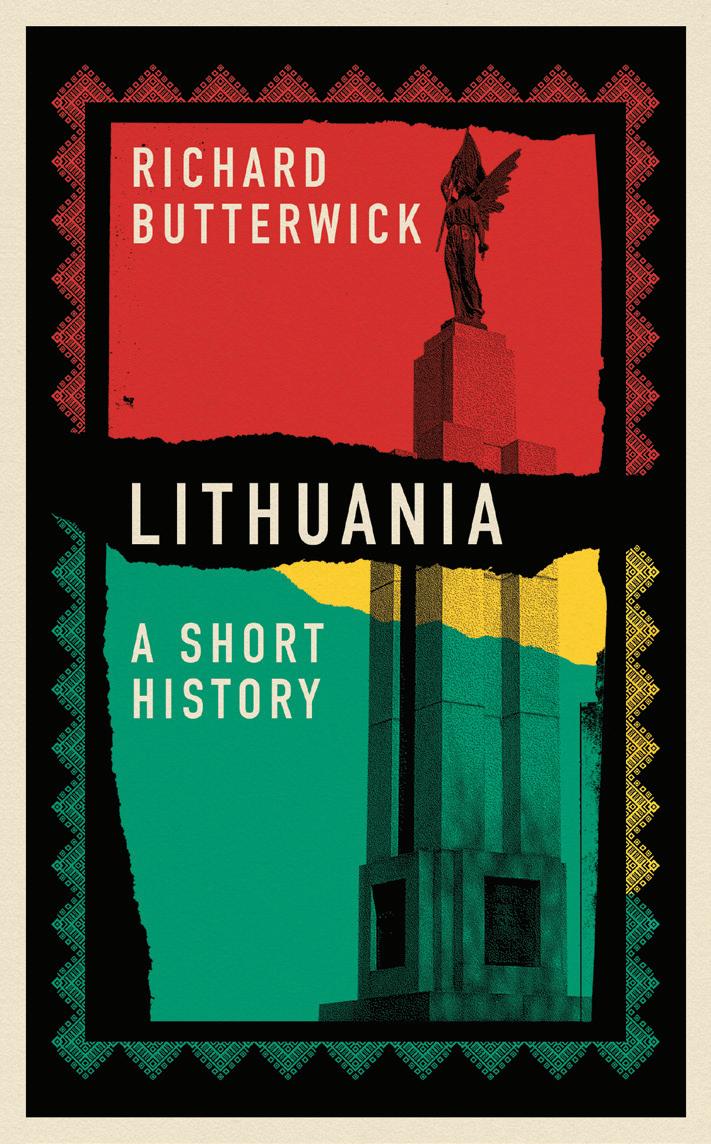

December 2024
9781911723608
216mm x 138mm
320pp
£18.99 Paperback
History / Eastern Europe World rights
Richard Butterwick is Professor of PolishLithuanian History at the School of Slavonic and East European Studies, University College London; Principal Historian of the Polish History Museum; and Chairholder of the European Civilization Chair in the College of Europe in Natolin, Warsaw. His books include the awardwinning The Polish-Lithuanian Commonwealth, 1733–1795.
The first popular history of a small post-Soviet state, and a very old European power.
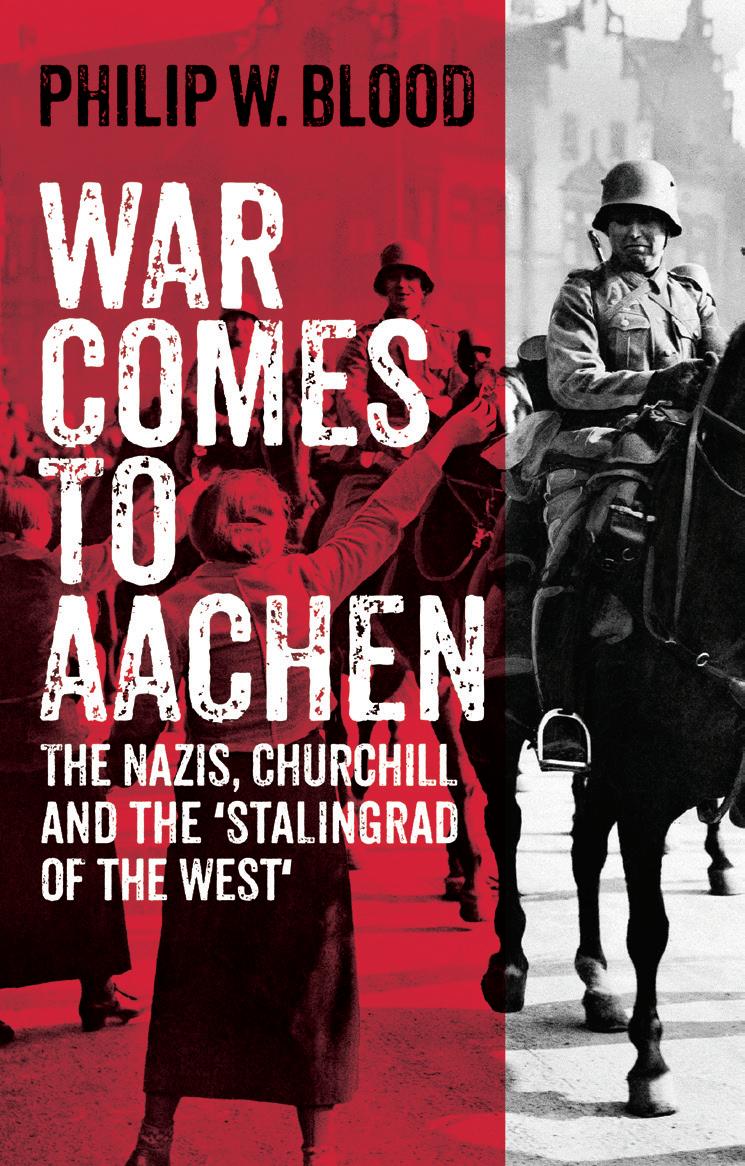

September 2024
9781911723691
216mm x 138mm 400pp
£27.50 Hardback
History World rights
PHILIP W. BLOODThe Nazis, Churchill and the ‘Stalingrad of the West’
This book narrates the tumultuous era of total war through the fate of Aachen—Imperial Germany’s seat of power for 600 years, site of Charlemagne’s coronation as Holy Roman Emperor, and a place with greater geopolitical significance for Adolf Hitler in 1944 than Stalingrad in 1943.
This was a stark contrast with the events of the Great War: in 1918, the Imperial German Army had abandoned Aachen in a rout-like flight. In the Nazi period, however, Aachen became a major symbol of Germany’s defiance against the Allies. For Hitler—his mind warped after surviving the Stauffenberg bomb plot—Germany’s westernmost city became pivotal in his last-ditch defence of the ‘thousand-year Reich’.
A micro-history of ‘Charlemagne’s city’ in the First and Second World Wars, its inhabitants’ embrace of Nazism, and Churchill’s response.
War Comes to Aachen weaves together the city’s story from 1900, tracing its entrenched Catholic orthodoxy, its growth as an industrial urban centre, the demise of democracy, the rise of Nazism, the two world wars, and the Holocaust. The book surveys Churchill’s wartime leadership and the destruction of pre-war Aachen through the lenses of military history and the anthropology of aerial bombing. Philip W. Blood’s absorbing history concludes with Allied efforts to reshape German society after 1945, and with the use of remembrance as a means of socio-political control.
Philip W. Blood is a British military historian who lives in Aachen. His books include Birds of Prey: Hitler’s Luftwaffe, Ordinary Soldiers, and the Holocaust in Poland.
Huang Chin-tao was born in 1926, when Taiwan was still part of the Japanese Empire. By the time he died in 2019, Taiwan was a bustling, hightech democracy—and Huang had lived through every twist and turn along the way. He served as a Japanese soldier in China during World War II; joined an armed uprising against Taiwan’s Chinese Nationalist post-war government; spent twentyfour years imprisoned during the island’s decades of martial law; and finally emerged to help lead the pro-democracy movement of the 1980s in his hometown, Nantun.
Drawing upon archives, memoirs, interviews and more, Anna Beth Keim tells the story of Taiwan through the journey of one extraordinary individual. From his childhood scuffling with Japanese children to his transformation into a ‘democracy farmer’, Huang’s life vividly reflects contemporary Taiwanese history, and continues to inspire young Taiwanese today who are fighting to keep their home independent.
Over roughly a century, the island transitioned from an imperial outpost to an authoritarian state to a democracy—one still at risk of being snuffed out by China. This story is uniquely Taiwanese, yet illuminates experiences shared by countries everywhere: of colonisation and its aftermath, and the ongoing struggle to be free.
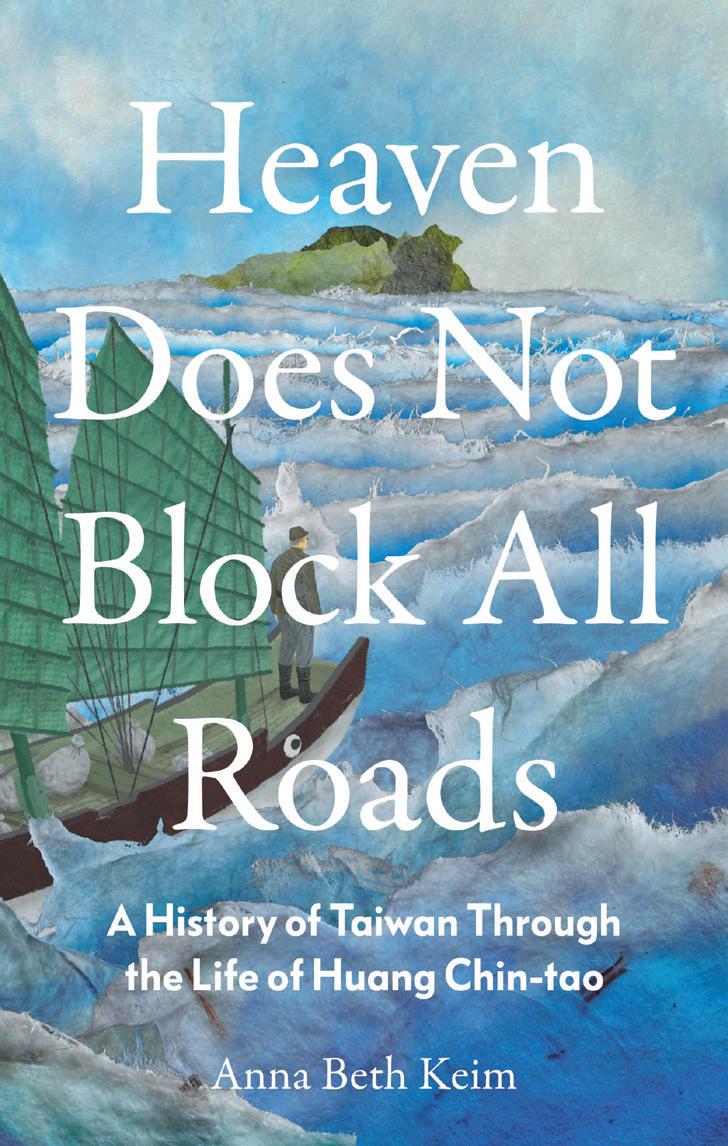

January 2025
9781911723622
216mm x 138mm
352pp
£25.00 Hardback
History / Biography / East Asia
World rights
Anna Beth Keim is a freelance writer and translator, who has been reporting on Taiwan since 2015. Her work has appeared in ChinaFile, Foreign Policy, YaleGlobal and The Foreign Service Journal. This is her first book.
A hundred-year history of the challenges and triumphs of contemporary Taiwan, through the inspiring true story of one man who lived through it all.


August 2024
9781911723639
216mm x 138mm
264pp
£27.50 Hardback
History / Media Studies
World rights
The intriguing story of how two revolutionary writers and their pioneering war reporting changed the way we think about modern conflict.
The Crimean War was the greatest international crisis of the Victorian era. And during this conflict, two embedded writers—the young Russian officer Lev Tolstoy, and William Howard Russell, an Irish correspondent for The Times —brought the horrors of modern combat home to the public for the first time.
Long recognised for introducing new technologies like the rifle, railroad and telegraph, the Crimean War also irrevocably changed how we understand warfare. Stripping away the romanticism of the Napoleonic era, Tolstoy and Russell exposed how their governments were using lies and coverups to propel their nations into the first quagmire of our age. Their writing shocked readers, demonstrating that their loved ones were dying needlessly—a revelation confirmed by soldiers’ letters and diaries. Never before had the world witnessed such a showdown between the voices of private individuals and those of their governments. Tolstoy and Russell confronted the politically powerful and paid dearly for their honesty, but their legacy remains almost unparalleled.
Crimean Quagmire is the first book to tell the full story of both writers and their impact on modern warfare and reporting. As quagmires have increasingly come to define contemporary conflict, the Crimean War has never been more relevant.
Gregory Carleton is Professor of Russian Studies at Tufts University. He has devoted his career to engaging students and readers with the challenges and mysteries of Russia’s culture, history, literature and people, publishing extensively on these topics. Crimean Quagmire is his fourth book.
Days before his country signed a deal to normalise ties with Israel, the Emirati Ambassador to the US penned an article in Hebrew, directly addressing Israelis. Israel, he argued, faced a choice between engagement with the rest of the region, or isolation. His words struck a chord then, and will continue to ring true in the decades to come.
Michael A. Horowitz tells the unfolding story of this decision: of tension between the hope ushered in by the normalisation agreements, and the enduring despair both Israelis and Palestinians feel about the waning prospects of peace. Rather than examining the past, Horowitz looks to Israel’s future—one marked by new opportunities, but also tremendous challenges, as the country tries to find its place in a region trying to find itself.
Israel is a ship in a storm, navigating a ‘new’ Middle East where unfinished revolutions, regional competition, perceived US disengagement and an unstable but menacing Iran all warrant caution. In the ‘promised land’ itself, existing gaps are widening, and the space for optimism is shrinking. Hope and Despair is a brutally honest exploration of what lies ahead for Israel: the waves, the winds, and the ray of light above the clouds.
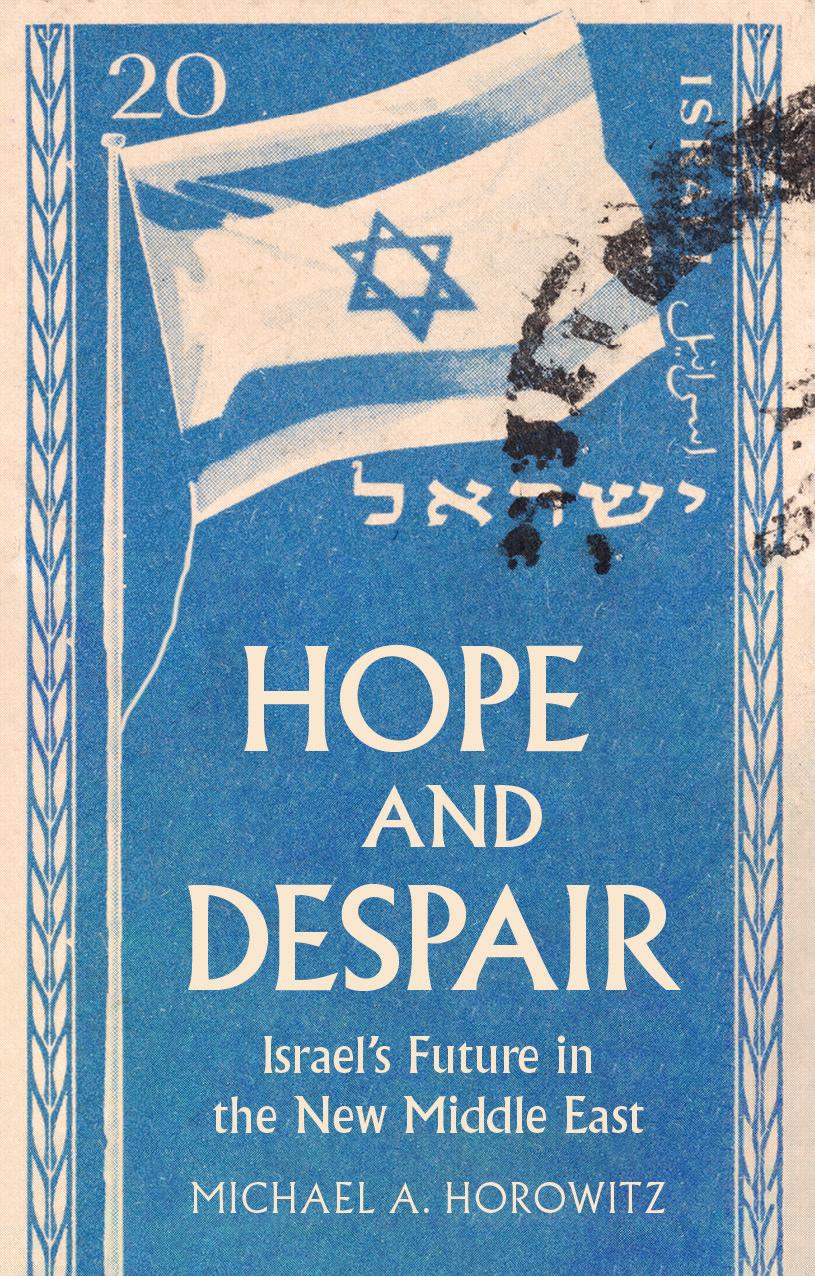

May 2024
9781911723196
216mm x 138mm
312pp
£30.00 Hardback Middle East / Politics World rights
Michael A. Horowitz is a renowned geopolitical expert, focussing on the Middle East. After serving in the IDF, he has held positions in consultancies in Israel and the Gulf, advising local and foreign governments, NGOs and global corporations. He writes commentary and analysis for both regional and international media.
A frank assessment of Israel’s uncertain place in a region scarred by conflict and insecurity. Where can the country and its people go from here?
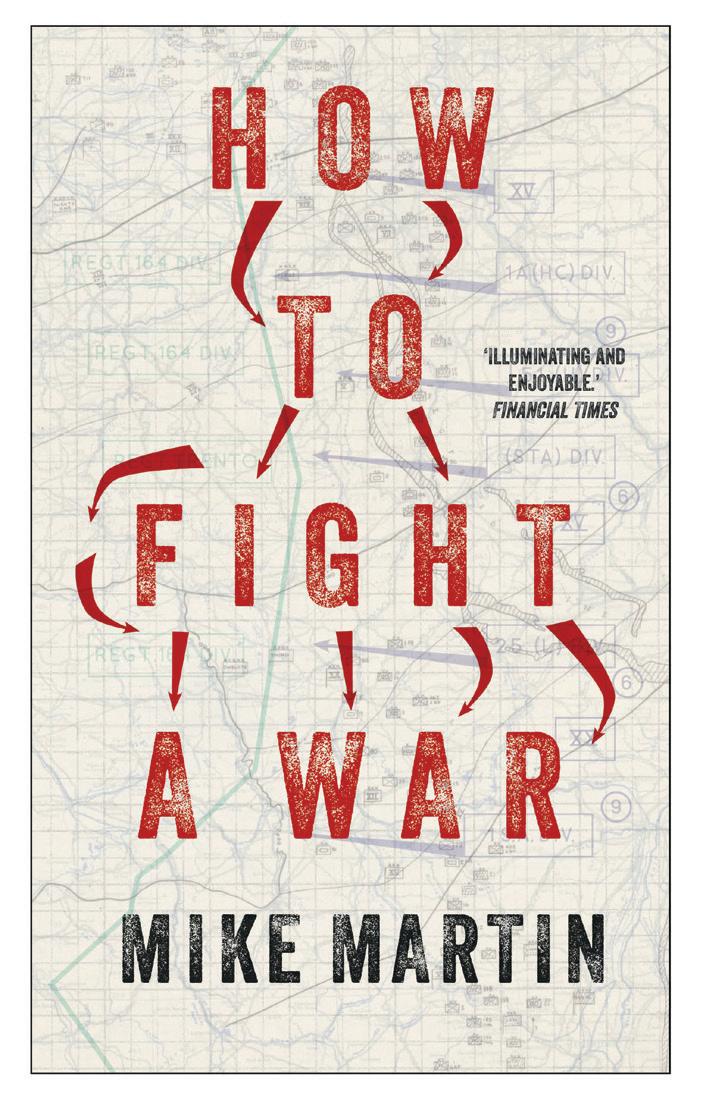

August 2024 • 9781911723875
198mm x 129mm • 280pp
£15.99 Paperback War Studies
World rights excluding Southern Africa, South Asia, and the Traditional Chinese & German languages
By the same author:


9781849048910
£15.99 pb
Available now
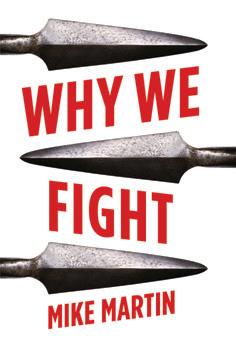

9781787384897
£12.99 pb
Available now
An indispensable guide to understanding modern warfare, especially the decisions made by politicians and generals— both good and bad.
‘An illuminating and enjoyable account of warfare and guidelines to achieve lasting peace ... written in an engaging style, rich in personal and historical anecdote, that lays out complex issues in an absorbing and logical way.’ — Financial Times
‘Many of today’s pundits, journalists, and socalled “experts” would do well to put down their phones, give their thumbs a rest, and pick up Martin’s How to Fight a War.’ — Diplomatic Courier
‘Essential reading.’ — Times Radio
‘Compelling, timely and very accessible. How to Fight a War shows that behind the complex horrors of conflict lie simple and enduring truths about humankind.’ — Sir Nick Clegg
‘An excellent summary.’ — Politique étrangère
‘Enlightens the reader about principles that have been forgotten in Western societies in recent decades.’ — Frankfurter Allgemeine Zeitung
‘Colourful, punchy, admirably challenging and clear—essential reading for every soldier, officer and General.’ — General Sir Patrick Sanders, Chief of the General Staff, British Army
RIGHTS SOLD
German, Complex Chinese, South African & Audio rights
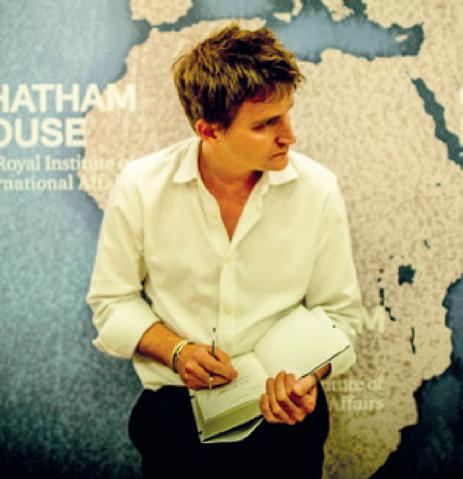
Mike Martin is Senior Visiting Research Fellow in the Department of War Studies at King’s College London, where he speaks and writes on conflict. His previous books, also published by Hurst, are An Intimate War; Crossing the Congo; and Why We Fight. He tweets about conflict and geopolitics as @ThreshedThought.
Decolonisation has lost its way. Originally conceived as a struggle to escape the West’s direct political and economic control, it has become a catch-all idea, often used to perform contemporary ‘morality’ or ‘authenticity’. In the process, it suffocates African thought, and denies African agency.
Olúfẹ mi Táíwò fiercely rejects the indiscriminate application of ‘decolonisation’ to everything from literature, language and philosophy to sociology, psychology and medicine. He argues that the decolonisation industry, obsessed with exposing slights and cataloguing wrongs, is seriously harming scholarship on and in Africa. He finds decolonisation as applied to culture intellectually unsound and wholly unrealistic, conflating modernity with coloniality, and groundlessly advocating an openended undoing of global society’s foundations. Worst of all, today’s movement attacks its own proclaimed cause: ‘decolonisers’ themselves are disregarding, infantilising and imposing values on contemporary African thinkers.
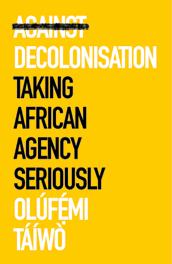
June 2022
9781787386921
190mm x 126mm
368pp
£14.99 Paperback
Current Affairs / Philosophy / Africa World rights
This powerful, much-needed intervention questions whether today’s ‘decolonisation’ truly serves African empowerment. Táíwò’s is a bold challenge to all concerned for Africa’s future: to resist sweeping moralities, and grant the respect due to African intellectuals as innovative adaptors, appropriators and synthesisers of ideas they have always seen as universally relevant. It’s time to reclaim decolonisation, within the constraints of what is measurable, achievable and desirable. Published in
A leading African political philosopher offers his searing intellectual and moral critique of the ‘expanded’ decolonisation movement.

Olúfẹmi Táíwò is Professor of African Political Thought and current Chair at the Africana Studies and Research Center, Cornell University. His writings have been translated into French, Italian, German and Portuguese. He has taught at universities in Canada, Nigeria, Germany, South Korea and Jamaica.


September 2020
9781787381919
216mm x 138mm 208pp
£20.00 Hardback History World rights
A dazzling history of Africans in Europe, revealing their diverse contributions in shaping the Continent.
Africans and African Europeans are widely believed to be only a recent presence in Europe, a feature of our ‘modern’ society. But as early as the third century, St Maurice—an Egyptian— became the leader of a legendary Roman legion. Ever since, there have been richly varied encounters between those defined as ‘Africans’ and those called ‘Europeans’, right up to the stories of present-day migrants to European cities. Though at times a privileged group that facilitated exchanges between continents, African Europeans have also had to navigate the hardships of slavery, colonialism and their legacies.
Olivette Otele uncovers the long history of Europeans of African descent, tracing an old and diverse African heritage in Europe through the lives of individuals both ordinary and extraordinary. This hidden history explores a number of questions very much alive today. How much have Afro-European identities been shaped by life in Europe, or in Africa? How are African Europeans’ stories marked by the economics, politics and culture of the societies they live in? And how have race and gender affected those born in Europe, but always seen as Africans?
African Europeans is a landmark celebration of this integral, vibrantly complex slice of European history.
RIGHTS SOLD
North American, Portuguese, German, Italian, Catalan, French, Dutch & Spanish

Olivette Otele is Professor of the History of Slavery at Bristol University and VicePresident of the Royal Historical Society. She is an expert on the history of people of African descent and the links between memory, geopolitics and legacies of French and British colonialism.
A global energy revolution is unfolding before our eyes: ever-growing numbers of electric vehicles on our roads, laptops that last all day on a single charge, and solar panels on our roofs, all reliant on lithium-ion batteries. This revolution is happening at breath-taking speed, with the potential to completely transform key industries and the way we live.
For the first time in history, we can now actually store this green energy we talk so much about. Often referred to as ‘the new oil’, lithium allows large amounts of energy to be squeezed into a very small space. Demand is soaring, and the lithium business is full of drama: bitter rivalries, shady deals and exceptionally talented visionaries such as Elon Musk, who is building lithium battery giga-factories across the world.
This book travels from the salt lakes of the Tibetan plateau, where Chinese government–linked companies extract lithium, to Argentina, Chile and Bolivia, which hold the world’s biggest resources of the mineral. It reveals superpowers’ struggles to secure strategic supplies, and the astonishing efforts of lone-wolf inventors and entrepreneurs. Lithium also explores the environmental impact of lithium extraction, the limits to battery electrification, and lithium battery recycling as the way forward.
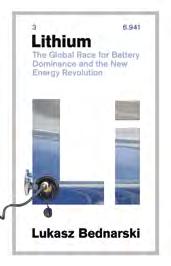
July 2021
9781787385634
216mm x 138mm
256pp
£25.00 Hardback
Environment / Economics World rights
Lukasz Bednarski is Senior Battery Materials Analyst at IHS Markit, founder of the lithium industry portal Lithium Today and a former commodity trader.
How a little-known mineral will affect our jobs and daily lives as much as, if not more than, AI or Big Data have done.
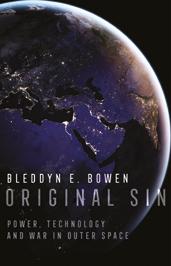
October 2022
9781787387775
216mm x 138mm
344pp
£20.00 Hardback War Studies / Technology
World rights
Space technology’s ‘original sin’ is its militaristic heritage: Earth orbit was first exploited to enhance the killing power of the state. In Bleddyn E. Bowen’s vivid retelling, the Moon landings and the launch of the Space Shuttle were mere sideshows, drawing public attention away from the real objectives of this technology: gaining military and economic power for terrestrial purposes.
Today, there are thousands of active satellites in space, working silently in the background to provide essential military, intelligence and economic capabilities. No major power can do without them. Beyond Washington, Moscow and Beijing, Bowen’s story of ‘spacepower’ charts the evolution of truly global technologies—from the ground floor of the nuclear missile revolution, to today’s orbital battlefield shaping the wars to come, as world powers including India, Japan and Europe fully realise the strategic benefits of commanding Earth’s ‘cosmic coastline’.
An eye-opening account of how spacepower and the prospects of space warfare are shaping international relations on Earth.
Yet, as new entrants gradually but methodically spend more on outer space, as a stage for war, development or prestige, there is scope for cautious optimism about the future of the Space Age—if we can recognise, rather than hide, its original sin.
RIGHTS SOLD Polish, Chinese, & South Asia

Bleddyn E. Bowen is Associate Professor of International Relations at the University of Leicester, specialising in space policy and military uses of outer space. The internationally recognised author of War in Space, he consults on space policy for institutions including the UK Parliament, the European Space Agency, and the Pentagon.
‘An urgent and important book.’ — Financial Times
‘A brilliant, well written and important book. Thoroughly recommended.’ — LSE Review of Books
‘This book, written by one of the greatest living development economists, is full of hard-won insights and provocative observations. Dercon’s radical modesty, fierce intelligence and deep commitment to describing what actually occurs in the field—in all its hypocrisy, comedy, tragedy, mystery and idealism—distinguishes him in a field too often defined by naive optimism and snake oil solutions.’ — Rory Stewart, former UK Secretary of State for International Development
‘A challenging, informed and insightful book. Dercon brings expertise, humility and humanity to the vital question of what makes countries poor and what can help them prosper.’ — David Miliband, President and CEO, International Rescue Committee, and former UK Foreign Secretary

Stefan Dercon is Professor of Economic Policy and Director of the Centre for the Study of African Economies at the University of Oxford. Combining an academic career with long experience in
international development policy, he is a former DFID chief economist and policy advisor to the UK Foreign Secretary.
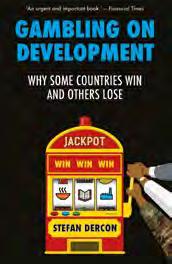
April 2023
9781805260080
216mm x 138mm
412pp
£16.99 Paperback
Development Studies
World rights excluding the Arabic, Simplified Chinese & Turkish languages
According to a leading economist, success arises when elites bet on growth.
RIGHTS SOLD
Chinese Simplified, Turkish & Arabic
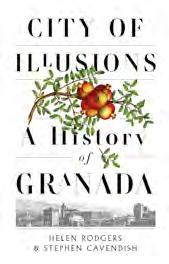
July 2021
9781787385580
216mm x 138mm
312pp, 16pp colour illus
£18.99 Hardback
History / Travel / Europe World rights
Granada is a deceptive city, concealing a layered past and a complex character. The last Muslim capital in Western Europe, over the centuries it has captured the hearts and imagination of its inhabitants, and featured in countless myths and legends. Yet historical evidence reveals real tales from Granada that are even more fascinating: a romantic epic of secrets and follies, victory and failure, poetry and art.
City of Illusions brings together Granada’s many stories—the archaeological forger, the renegade French general, the garrotted liberal heroine, and the Jewish poet and right hand of two Muslim rulers. From the founding dynasty to the building of the Alhambra, to the Reconquista, French occupation and Spanish Civil War, this is the history of Granada from its eleventh-century origins to the present day.
Granada’s historical narrative has long been fought over, recreated, idealised or buried. Elegant and deeply researched, this book sets the record straight, delving into the true story of a beautiful city, with all its quirks, mysteries, intrigues and triumphs.
A scintillating history of one of Europe’s most alluring cities.
Helen Rodgers is an Arabist, whose fascination for the history of the Arab world has led to over two decades of historical research across the Mediterranean region. Stephen Cavendish is a writer, editor and historian with a passion for the medieval and modern history of Europe and the Middle East.
With Russian shells raining on Kyiv and tanks closing in, American forces prepared to evacuate Ukraine’s leader. Just three years earlier, his apparent main qualification had been playing a president on TV. But Volodymyr Zelensky reportedly retorted, ‘I need ammunition, not a ride.’ Ukrainian forces won the battle for Kyiv, ensuring their country’s independence even as a longer war began for the southeast.
You cannot understand the historic events of 2022 without understanding Zelensky. But the Zelensky effect is less about the man himself than about the civic nation he embodies: what makes Zelensky most extraordinary in war is his very ordinariness as a Ukrainian.
The Zelensky Effect explains this paradox, exploring Ukraine’s national history to show how its now-iconic president reflects the hopes and frustrations of the country’s first ‘independence generation’. Interweaving social and political background with compelling episodes from Zelensky’s life and career, this is the story of Ukraine told through the journey of one man who has come to symbolise his country.
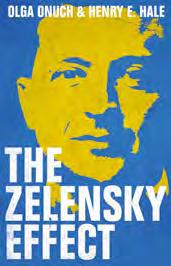
November 2022
9781787388635
216mm x 138mm
304pp
£17.99 Hardback
Current Affairs / Politics
World rights
In the series NEW PERSPECTIVES ON EASTERN EUROPE & EURASIA
Edited by Dr Ben Noble

Olga Onuch is Senior Lecturer in Politics at the University of Manchester.
A compelling story of how ordinary Ukrainians saved their nation.
Henry E. Hale is Professor of Political Science and International Affairs at George Washington University.
RIGHTS SOLD
Polish & Ukrainian
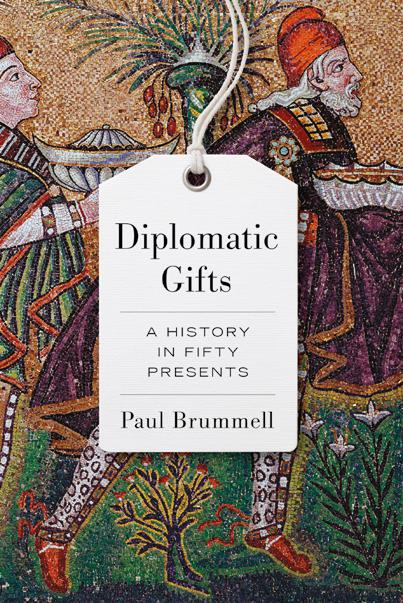
Gifts have been part of international relations since ancient times. They can serve as tokens of friendship, apology or authority; as taunts, bribes, boasts or tricks. They can also go wrong: Mali’s 2013 gift of a camel to French President François Hollande was reported to have ended up in a tagine.
Exploring fifty diplomatic gifts given through the ages, Brummell explains the great complexity of this political art—an exercise in brand-building for the giver, via an item that must suit the recipient’s own interests and character. Byzantine emperors sent fragments of the True Cross to fellow Christian rulers around Europe; Kings Louis XV and XVI of France used Sèvres porcelain, while the Ottoman sultans favoured robes of honour. In some cases, recipients have made no secret of the gift they would want. The Amarna Letters, dating to around 1350 bce , record a communication from Hittite Prince Zita to the Egyptian Pharaoh, offering sixteen men—and hinting rather heavily that he would like some gold in return.
From the Trojan Horse to Cleopatra’s Needle to the Statue of Liberty, this rich history offers a new take on both the curious detail and the grand spectacle of global politics.
January 2022
9781787386457
234mm x 156mm
376pp, 50pp colour illus
£25.00 Hardback
History
World rights
Paul Brummell is a British career diplomat and currently the UK Ambassador to Latvia. His previous ambassadorial postings were to Romania; Turkmenistan; and Kazakhstan and Kyrgyzstan. He has also served as the UK’s high commissioner to Barbados and the Eastern Caribbean.
A lavishly illustrated history of diplomatic gifts, from the infamous Trojan Horse to the much-loved Christmas tree at Trafalgar Square.
RIGHTS SOLD
Chinese Simplified & Complex (Traditional)


April 2022
9781787387195
216mm x 138mm
408pp, 14 b&w illus
£14.99 Paperback
History / Military History
World rights excluding the French & Italian languages
NEW EDITION
‘Reminds us that even with an international convention banning them, the threat of chemical weapons being used outside conventional warfare is ever-present.’
— Nature
‘Kaszeta has a difficult theme but he avoids both jargon and the intricacies of the science … You feel part of the discussion, helped through the complexities and invited to turn back to previous pages to better understand a line of history or thinking.’ — The Scotsman
‘Dan Kaszeta weaves an extraordinary narrative from the secret history of some of the deadliest substances ever created. From the plains of north Germany to the suburbs of Damascus, he explains the development and use of nerve agents, employing his own deep knowledge, telling detail, and deadpan humour.’ — Mark Urban, author of The Skripal Files
‘Brings to life this macabre and secretive subject like never before … the investigatory work demonstrated by Kaszeta is clear and second to none … [A] highly thought-provoking and entertaining read.’ — The RUSI Journal
RIGHTS SOLD
Italian & French

Dan Kaszeta runs a specialist consulting firm in London. He has decades of experience protecting against chemical and biological weapons. An associate fellow at the Royal United Services Institute, he has held positions in the US Army, the White House Military Office, the US Secret Service, and private industry.
‘Captures South Korea’s triumphant postwar ascent from abject poverty and trauma.’ — The Guardian
‘A book by someone who adores South Korea and has done so since his first trip there as a student … captures the remarkable scope of recent triumphs that give South Korea both agility—as Moon’s diplomacy has shown—and the affection of a global audience.’ — Financial Times
‘An engaging account.’ — The New Statesman
‘A fluid and informative read. Highly recommended!’ — Victor Cha, author of The Impossible State, and former Director for Asian Affairs, US National Security Council
‘A well-told story of South Korea’s rise to the spotlight.’ — The Korea Herald
‘An enthusiastic and breezy book that trumpets the success of South Korea … surveys the country’s complex and fascinating story, and its rise.’ — Diplomatic Courier
‘A wonderful introduction to contemporary Korean history.’ — Sung-Hwan Kim, Chairman of the East Asia Foundation

Ramon Pacheco Pardo is Professor of International Relations at King’s College London, and KF-VUB Korea Chair at the Brussels School of Governance. He has lived twice in South Korea, and remains a regular visitor there for both work and leisure. He regularly teaches and provides media commentary about the country.
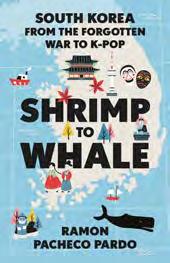
July 2023 9781805260301
198mm x 129mm
336pp, 24 colour illus £16.99 Paperback History / East Asia
World rights excluding the Italian, Korean & Portuguese languages
Charts the incredible rise of South Korea, from colonisation and civil war to today’s thriving nation.
RIGHTS SOLD
Portuguese, Italian, Korean & Turkish
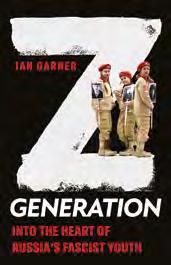
May 2023
9781787389281
234mm x 156mm
256pp
£25.00 Hardback
Current Affairs / Politics
World rights
In the series
NEW PERSPECTIVES ON EASTERN EUROPE & EURASIA
Edited by Dr Ben NobleA revealing insight into how fascist youth movements have transformed Russian society and politics for the worse.
How did Vladimir Putin galvanise the Russian people to back his genocidal war in Ukraine and why are so many of them willing to embrace fascism? This vivid, on-the-ground narrative reveals how Russia’s fascist generation came into being—and the dark future that awaits the country if that hold cannot be broken.
Wartime Russia is drowning in fascist symbols. Zealous patriots attack journalists, opposition activists, and anyone suspected of betraying the motherland. Russians are urged to join the cause by hordes of online trolls and sleek videos of angry young men bellowing patriotic slogans. State television terrifies viewers with trumped up tales of anti-Russian conspiracies and genocidal yearnings. Child soldiers proudly parade across Red Square. This is Russia in the 2020s: a land of performative rage and nationalist untruth, where play-acting, pretence and broken promises are a way of life. But in a world where pretence has become the norm, a terrifying, apocalyptic mindset is seizing the Russians of tomorrow.
As enrapturing as it is terrifying, Z Generation reveals how Russia ended up where it is today, and where its young people are headed: a fascist generation more zealous, violent and ideological than anything the country has seen before.

Ian Garner’s research focuses on Soviet and Russian war propaganda. The author of Stalingrad Lives: Stories of Combat and Survival, he studied at the Universities of Bristol and Toronto, and at the St. Petersburg State Conservatory.
‘China’s emerging mastery of the Eurasian trade zone is described in visionary, granular detail.’
— Wall Street Journal
‘Maçães is one of our chaotic times’ most fertile brains across Asia things are on the move, in large part because of Chinese ambition, and he is right to be excited about it.’ — The Times
‘Stimulating.’ — The Economist
‘In Belt and Road, Bruno Maçães sees the reach and influence of the West diminishing over the next thirty years.’ — Financial Times
‘A masterful overview of China’s Belt and Road project … it’s a fascinating, intriguing and terrifying story, and Maçães tells it superbly.’
— The American Interest
‘A remarkably insightful and comprehensive review of China’s Belt and Road initiative, with all its implications for … the reshaping of the global order. America and Europe: take note! This is essential reading for us all.’ — Stephen Green, former chairman of HSBC, and chair of Asia House, London
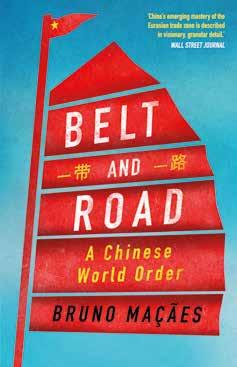
September 2020
9781787384071
198mm x 130mm
256pp
£11.99 Paperback Politics
World rights excluding South Asia

Bruno Maçães is a nonresident senior fellow at the Hudson Institute and Portugal’s former Europe minister (2013–15). He has been a regular commentator for CNN, the BBC, Al Jazeera, the Financial Times, The Guardian and Foreign Affairs. He is the author of History Has Begun; and The Dawn of Eurasia.
What does the biggest geopolitical project of our time tell us about China’s global ambitions?
Portuguese, Vietnamese & South Asia
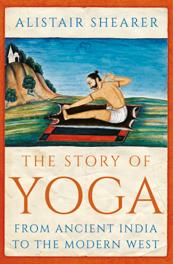
June 2022
9781787387188
216mm x 138mm 456pp, 27 colour illus
£12.99 Paperback History / Mind, Body & Spirit World rights excluding the Chinese & Spanish languages
‘A tale of what happens when East and West meet, and about a shift from the sacred to the secular. [Yoga’s] journey west gives Shearer a compelling cast of characters.’ — The Sunday Times
‘Erudite, scholarly and engrossing.’ — The Sunday Telegraph
‘A clear-eyed, elegantly written and wonderfully informative history of yoga … Shearer’s remarkable book is a wide-ranging and rather sobering discussion on the nature of authenticity.’ — The Spectator
‘Amid a sea of guidebooks, historian Alistair Shearer has provided a worthwhile counterpoint, [offering] advice as important as any guru’s techniques.’ — Financial Times
‘A quick-witted and erudite chronicle of the Hindu practice that is now a lucrative staple of “wellness” in the West.’ — The Wall Street Journal
The fascinating story of how an ancient Indian practice became a truly global phenomenon.
‘A fascinating survey not only for practitioners of the world’s burgeoning Wellness industry [but also] for general readers anxious about the fate of civilisation itself.’ — Asian Affairs

Alistair Shearer is a cultural historian specialising in the art and architecture of the Indian subcontinent; a former lecturer at SOAS University of London; and a teacher of meditation and the psychology of yoga. He has had a dozen books published, including a widely acclaimed translation of the Yoga Sutras.
How did humans, a species that evolved to be cooperative and egalitarian, develop societies of aggressively enforced inequality? Why did our ancestors create a world of patriarchal power, war and abuse? Did it have to be this way?
Powerful elites have always called hierarchy and violence unavoidable facts of human nature. The ‘science’ of evolution, they say, caused— and causes—men to fight, and people to have different, unequal roles, starting with men and women. But that is bad science.
In this fascinating, fun and important book, two anthropologists tell the real story of humanity, from early behaviours to contemporary cultures. From bonobo sex and prehistoric childcare to human sacrifice, Joan of Arc, Darwinism and Abu Ghraib, they reveal humankind’s evolutionary predisposition to both equality and inequality. Very old ideas of difference, invented by the earliest class societies, have hidden this truth, causing much female, queer and minority suffering. But there is hope.
Why Men? is not a book about what men and women are or do. It’s about what privileges humans claim, how they rationalise them, and how we unpick those ideas about our roots. It will change how you see the nature of injustice, violence and even yourself.


Nancy Lindisfarne is an anthropologist who previously studied and taught at SOAS University of London. Her most recent book, written with Richard Tapper, is Afghan Village Voices.
Jonathan Neale is an historian and professional writer. His most recent book is Fight the Fire: Green New Deals and Global Climate Jobs.
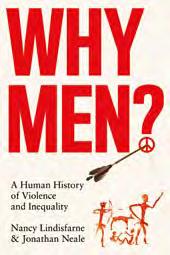
September 2023
9781805260165
234mm x 156mm
440pp
£25.00 Hardback Cultural History / Anthropology / Sociology World rights
Are war and inequality inevitable, because evolution made men competitive and dominant? Think again with this entertaining yet powerful new history of ‘true’ human nature.
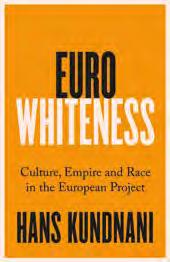
August 2023
9781787389328
190mm x 126mm
248pp
£14.99 Paperback European Union World rights
By the same author:

9781849047197
£15.99 pb
Available now
A revelatory account of the EU as a project driven by racialised thinking.
The European Union’s supporters claim it is a unique expression of cosmopolitanism and rejection of racism—after all, the ‘European project’ was meant to overcome virulent nationalism. Advocates equate the far right with Euroscepticism, even as far-right ideas increasingly influence the EU itself. Yet the ‘idea of Europe’ has a long, problematic history— in the medieval era, it was synonymous with Christianity; more recently, it accompanied the emergence of ‘whiteness’ in the context of European colonialism.
Hans Kundnani offers an alternative reading of the EU as a vehicle for imperial amnesia. He reveals European integration’s origins as a colonial project, a fact conveniently overlooked in favour of the internal lessons of European history (the Holocaust and Cold War), rather than external lessons around empire. In reality, Kundnani argues, the EU is more about power than peace, eliding civic ideas of Europe with an ethnic and cultural identity.
After the Cold War, the EU’s eastern borders softened, but its southern ones hardened. Since the 2015 refugee crisis, notions of whiteness have become more central to European identity—a troubling new turn in Europe’s long civilisational project. It is time to confront the relationship between ideas of Europe and ideas of race.

Hans Kundnani is an associate fellow and former Europe programme director at Chatham House, and the author of Utopia or Auschwitz and The Paradox of German Power, both published by Hurst. Hans writes regularly for The Observer, The Guardian, The New Statesman and Foreign Affairs, among others.
NEW EDITION
An Economist Best Book of 2021
‘Exceptionally timely [and] clearsighted.’
— Financial Times
‘A thought-provoking reflection on how AI will change conflict.’ — The Economist
‘An engaging and accessible guide to the development of artificial intelligence as applied to war.’ — Foreign Affairs
‘An important reminder that military AI is not purely a technological feat, but also a ground for reckonings on the ethics of warfare and creative strategy. In advocating thoughtful regulation of autonomous systems, Payne offers his counterpoint to the Asimovesque robot overlords of science fiction: “War will remain something that is done by, and to, humans.”’
— International Affairs
‘A brilliant and gripping treatise on war in the age of intelligent machines.’ — Theo Farrell, Deputy Vice-Chancellor, University of Wollongong Australia
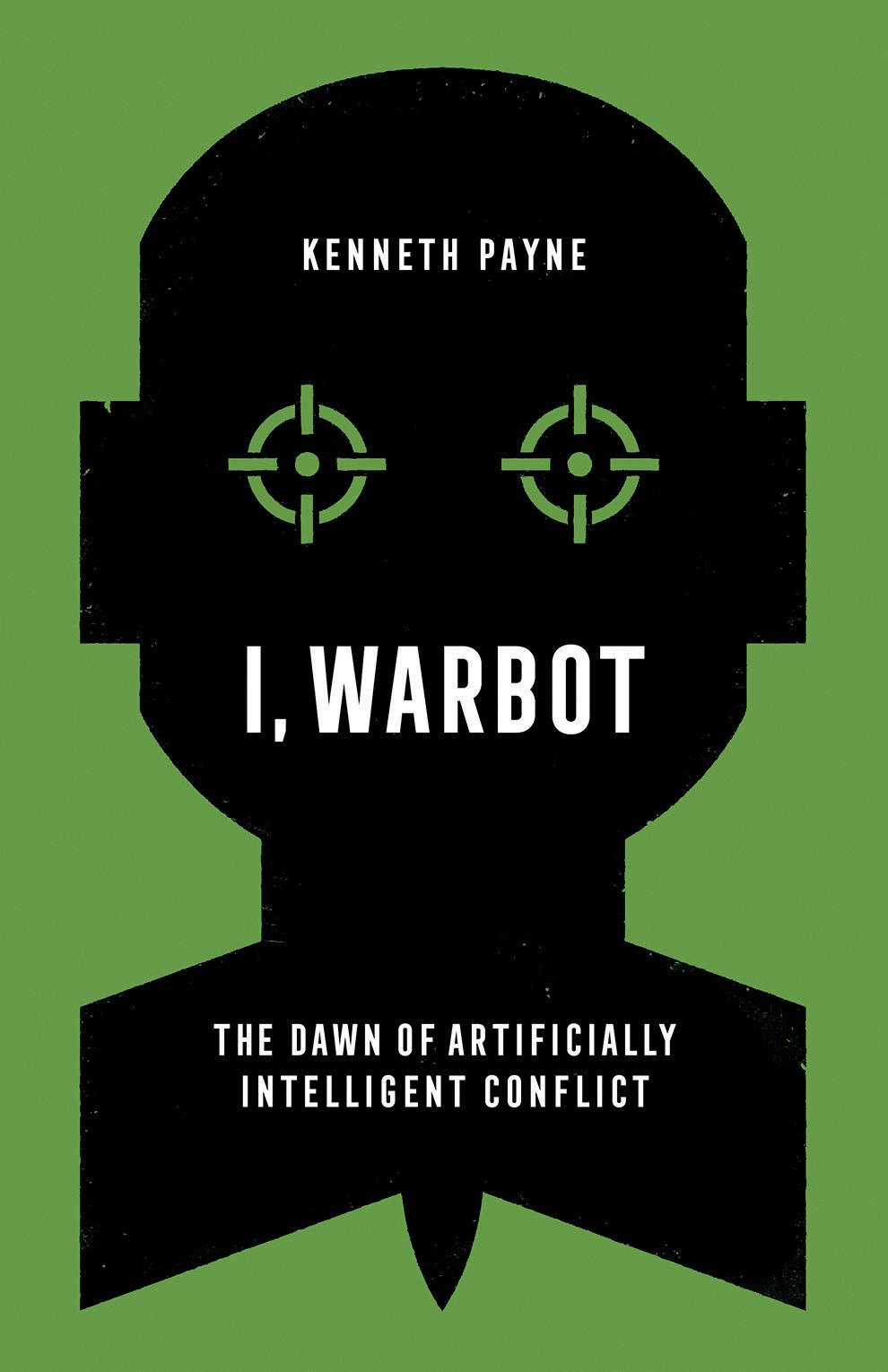

August 2022
9781787388253
198mm x 129mm 344pp
£14.99 Paperback War Studies
World rights

Kenneth Payne is a reader in International Relations at King’s College London. A former BBC journalist, he is the author of many articles and books, including The Psychology of Strategy: Exploring Rationality in the Vietnam War, also published by Hurst.
A historically grounded account, from de Gaulle onwards, of how France’s neocolonial influence crumbled in Africa, with devastating and unforeseen consequences.
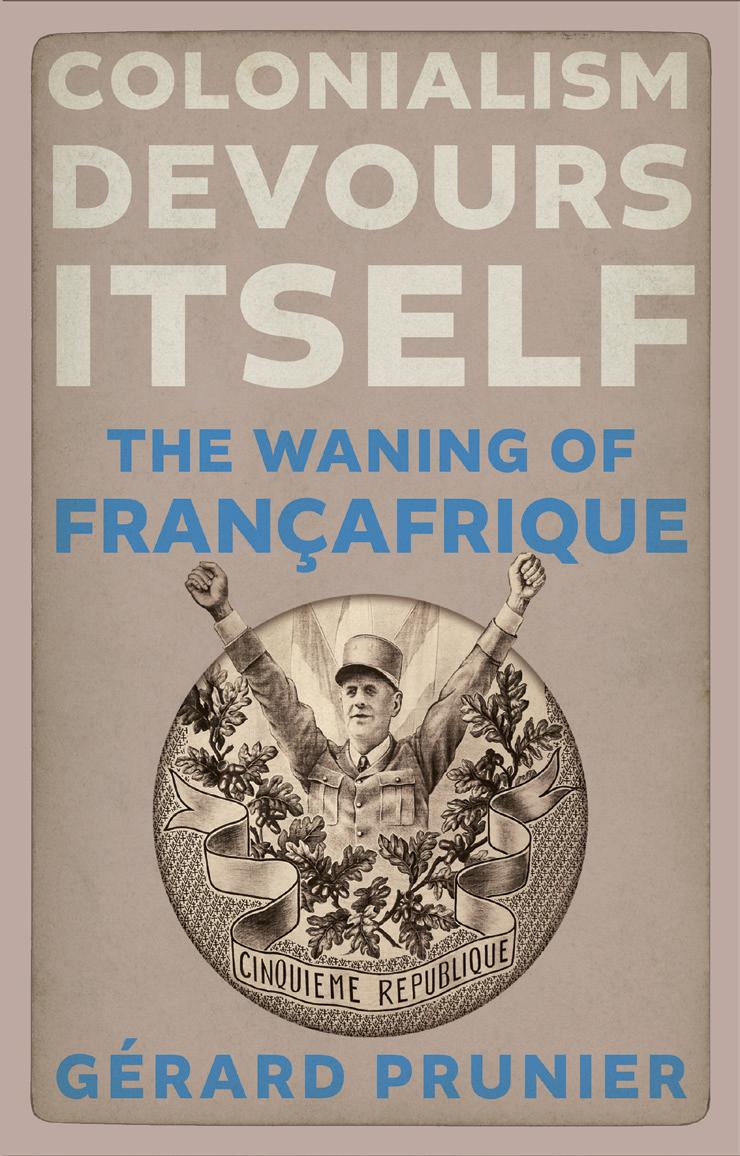

July 2024
9781911723653
190mm x 126mm
264pp
£18.99 Hardback
History / Colonialism World rights
A historically grounded account, from de Gaulle onwards, of how France’s neocolonial influence crumbled in Africa, with devastating and unforeseen consequences.
France is the only country that never decolonised its colonies, emotionally, financially or strategically. In the aftermath of losing the Second World War, notwithstanding de Gaulle’s attempts to convince his people otherwise, the French knew the game was up. (The Resistance fighters were heroes; but heroes are lonely.) For France, after 1945, the Second World War blended into the early Cold War, which Paris jumped into the day before it began. It fought in Indochina, and lost again. The independence war dragged on in Algeria. Then France lost there, too—painfully, with millions of its ordinary citizens expelled to a homeland that many of them hardly knew.
But Sub-Saharan Africa was still there. France produced a postcolonial antidote: Françafrique, France’s sphere of influence (or ‘backyard’) over its former West and Central African colonies. France loved Africa. Some Frenchmen died for Françafrique; others made millions from it.
The entire toxic edifice is now crumbling away. Young Africans are happy about this—but not so many of their parents, who often live in France. In his inimitable style, Gérard Prunier recounts a tragic transcultural saga, with one leg in the past and one in the future: the end of Françafrique.
Gérard Prunier is a renowned historian of contemporary Africa, author of, inter alia, the acclaimed The Rwanda Crisis: History of a Genocide and of The Country That Does Not Exist: A History of Somaliland, both published by Hurst.
Myanmar’s generals didn’t expect the nation to rise up against the coup they staged in February 2021. But after decades of stifling, direct military rule, the Burmese people had become used to another way of life during the relative openness of 2011–21. The army has been unable to suppress anti-coup protests as it did in 1962 and 1988; and, three years after sending tanks into Yangon, Naypyitaw and other cities, the army has yet to establish a functioning administration.
For the first time since the 1970s, armed resistance is not confined to traditionally strife-torn frontier areas, where ethnic insurgents like the Karen National Union and Kachin Independence Army have been active for decades—it has spread to the majority-Burmese heartland, in the shape of the People’s Defence Forces. But the anti-junta forces are insufficiently well-equipped to defeat the much more heavily armed Myanmar army, which itself is stretched too thin, on several fronts, to crush the resistance. And, despite foreign observers’ assurances, there is no unity, common command or synchronised strategy among the various ethnicminority and ethnic-Burmese resistance groups.
This is a war that neither side can win. Caught in the middle, and bound to suffer most, are civilians.
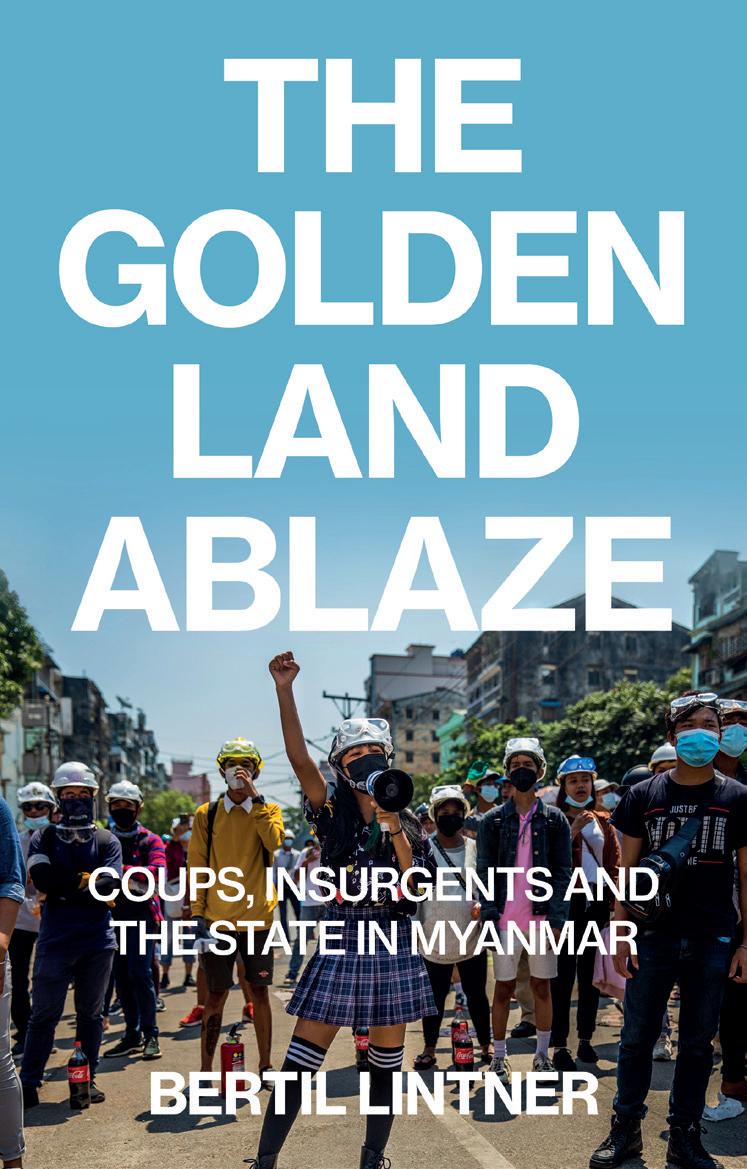

September 2024
9781911723684
216mm x 138mm 280pp
£25.00 Paperback
East Asian Studies
World rights
Bertil Lintner is an acclaimed journalist and expert on contemporary South-East Asia, especially Myanmar. Formerly the Far Eastern Economic Review’s Burma correspondent, and Asia correspondent for the Swedish daily Svenska Dagbladet, he is the author of, among others, The Costliest Pearl: China’s Struggle for India’s Ocean (also published by Hurst).
A world-leading expert on Myanmar assesses the ongoing popular uprising against the military junta that deposed Aung San Suu Kyi.
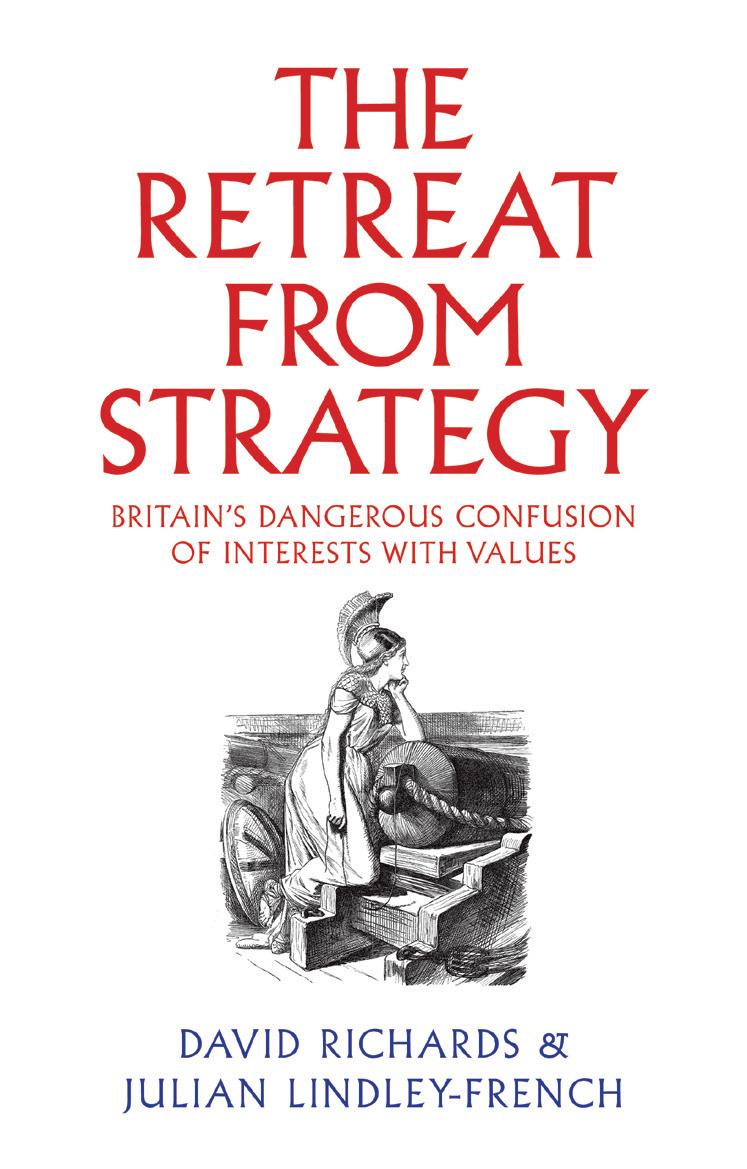

November 2024
9781911723677
216mm x 138mm 336pp
£25.00 Hardback War Studies / Politics World rights
DAVID RICHARDS & JULIAN LINDLEY-FRENCHBritain is sleepwalking to disaster, because London has abandoned all forms of proper strategy. That is the sobering message of this powerful analysis exposing the great failings of British security and defence policy.
Britain long ago abandoned the art and science of grand strategy, even though this is crucial for establishing the country’s direction of travel. Without grand strategy, national strategy has been reduced to little more than a political game of how much threat Britain can afford, and who gets what from an ever-shrinking resource pot. However, it is Britain’s defence policy where the contradictions and self-delusion of abandoned strategy are most apparent, and which explains why the balance between ends, ways and means— as sound strategy would demand—has become not just elusive, but nigh on impossible.
A frank assessment of what kind of strategic power Britain aspires to be, given its dwindling armed forces and growing threats from Russia and other actors.
This essential, incisive book offers Britain a pathway back to strategic realism, by ending the profound confusion of interests with values that has done so much damage to Britain and its vital place in the world of the twenty-first century.
General David Richards (Baron Richards of Herstmonceux) commanded British troops in East Timor, Sierra Leone and Afghanistan, then served as Chief of the Defence Staff and a National Security Council member. Professor Julian Lindley-French is Chairman of The Alphen Group, and author of Future War and the Defence of Europe.
Kingdom of Football explores how and why Saudi Arabia burst onto the landscape of world football in 2023, and examines what the speed and scale of Saudi engagement—as investor, owner, sponsor, host and competitor—might mean for the Kingdom and for football.
Writing as both a football fan and a Gulf specialist, Kristian Coates Ulrichsen offers historical and comparative contexts for Saudi Arabia’s startling emergence as a world football hub in the 2020s, exploring both previous Saudi investment in the game, in the 1970s, and national attempts elsewhere to kickstart the sport, as in the United States, Japan and China.
Going beyond popular media labels such as ‘sportswashing’, this fascinating book examines what drives Saudi policymaking, connecting the move into football with domestic economic and social developments, as well as external and foreign policy considerations. It also examines how Riyadh’s foray into world football both builds upon and yet differs from the approaches taken by other Gulf States, such as Qatar and the United Arab Emirates. Finally, Coates Ulrichsen assesses the sustainability and durability of the Kingdom’s engagement with the sport in the decade-long countdown to the 2034 FIFA World Cup, which Saudi Arabia is set to host.
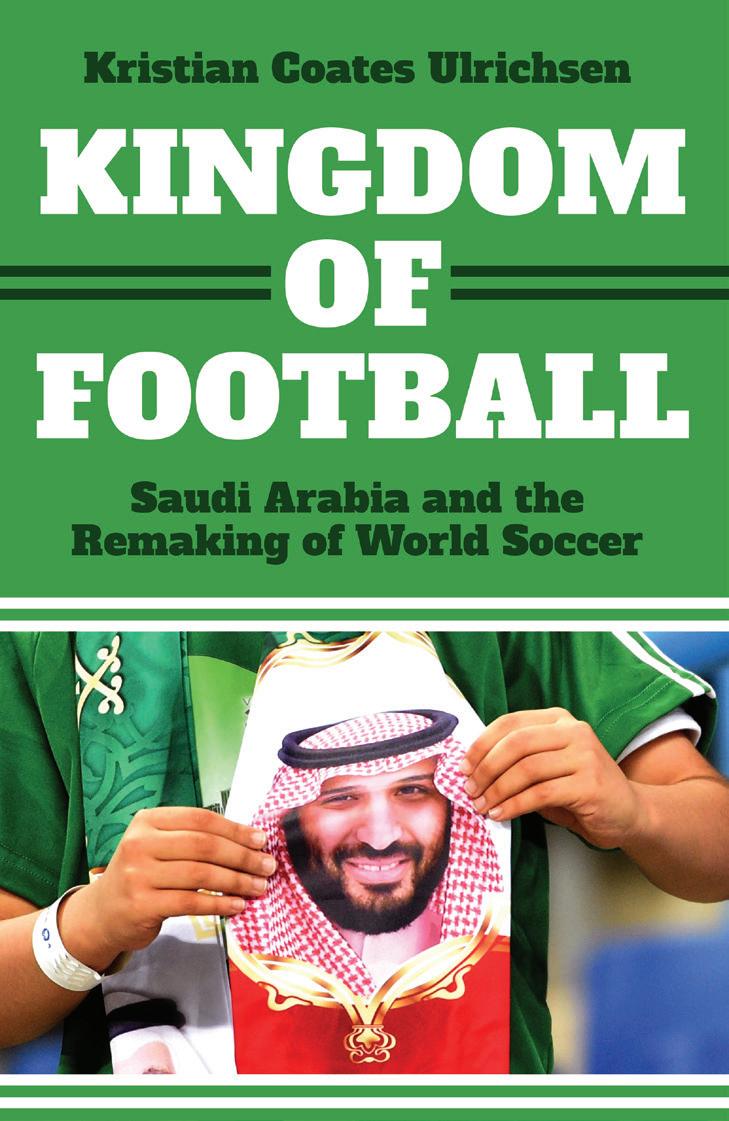

December 2024
9781911723660
216mm x 138mm 264pp
£20.00 Hardback
Middle East Studies / Sport World rights
Kristian Coates Ulrichsen is Fellow for the Middle East at Rice University’s Baker Institute for Public Policy, and an associate fellow of Chatham House’s Middle East and North Africa Programme. His books with Hurst include Insecure Gulf and Centers of Power in the Arab Gulf States. He supports West Ham.
A fascinating account of how Saudi Arabia leveraged its massive oil wealth to alter the balance of power in world football.
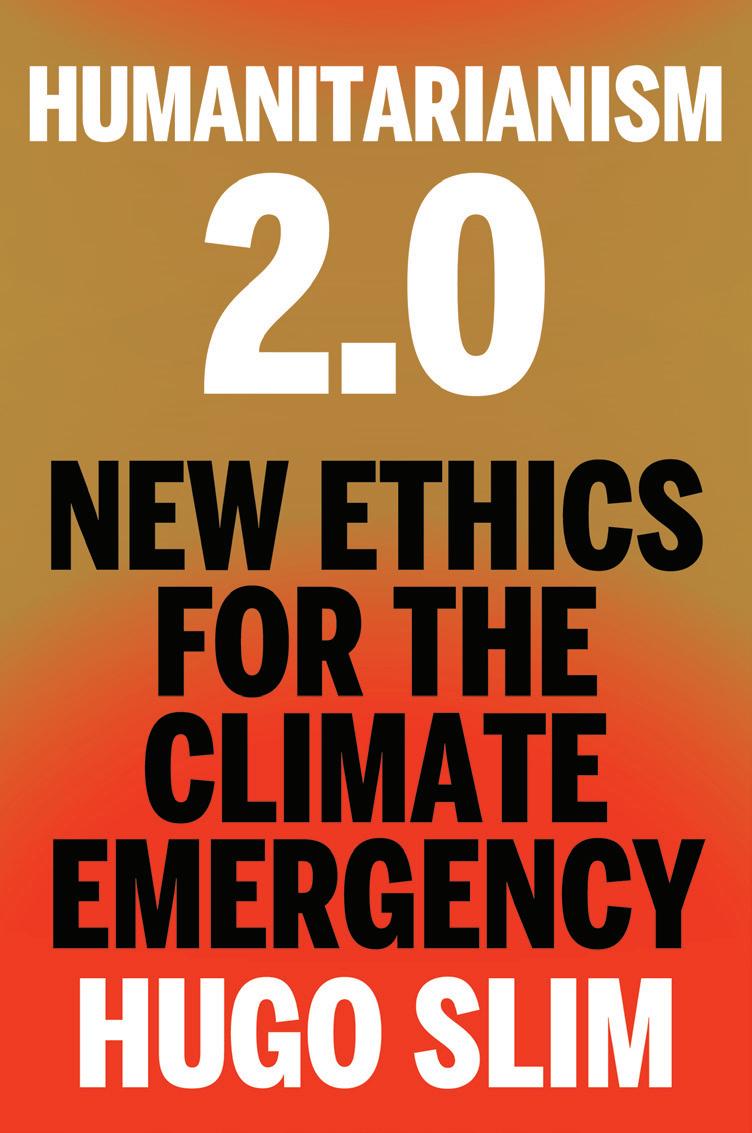

October 2024
9781911723707
190mm x 126mm 288pp
£18.99 Hardback Ethics / Development Studies / Environment World rights
This book spells out a new framework for humanitarian aid in the long emergency of climate change. Looking ahead to the massive needs of the late 2020s and the 2030s, Hugo Slim shows how current ethics and action in the sector are necessary, but not sufficient, for the new moral and operational challenges of our planetary crisis.
Humanitarianism 2.0 offers a series of practical ethical pathways for aid workers and organisations to reimagine and redesign their purpose in the increasing number of climate-related disasters around the world. Slim expands the fundamental principle of humanity to include the protection of nature in humanitarian ethics, and also faces up to the hard challenge of impartiality and prioritisation in a universal emergency. He then recognises anticipation, adaptation, mitigation and locally led aid as humanitarian obligations in climate-related disasters.
Like everything else in the climate and nature crisis, humanitarian ethics need adaptation. Slim’s bold, smart and much-needed proposals show the way.
A radical call for aid workers to rethink their practical roles and guiding principles, as people around the world face environmental catastrophe.
Hugo Slim is a senior research fellow at the Las Casas Institute for Social Justice at Blackfriars Hall, University of Oxford, and at the Oxford Institute for Ethics, Law and Armed Conflict at the Blavatnik School of Government.
Imagining a better future is at the heart of development. But mainstream development models are driven by a very narrow, Westerncentric set of ideas about what it means to be human. What could be possible if we let ourselves imagine differently?
As our world continues to evolve at breakneck speed and faces unprecedented crises—from the decaying environment to cascading inequality— the need for bold new directions for development has never been greater. Peter Sutoris and Uma Pradhan put a spotlight on the thoughtprovoking visions of leading theorists, activists and practitioners for rethinking development as a political project towards more equitable futures. Questioning top-down economic frameworks, they explore transformative ideas—from degrowth to indigenous knowledge—that may enable us to address the complexities of our rapidly changing global landscape. They consider how the world can chart a path towards reconciling the moral case for eradicating poverty with these critical perspectives to advance a more ethical approach, one that is sensitive to history, diversity, and the challenges and opportunities of this moment.
If development is to remain relevant today, it must reinvent itself—and finally listen to voices on the ground.
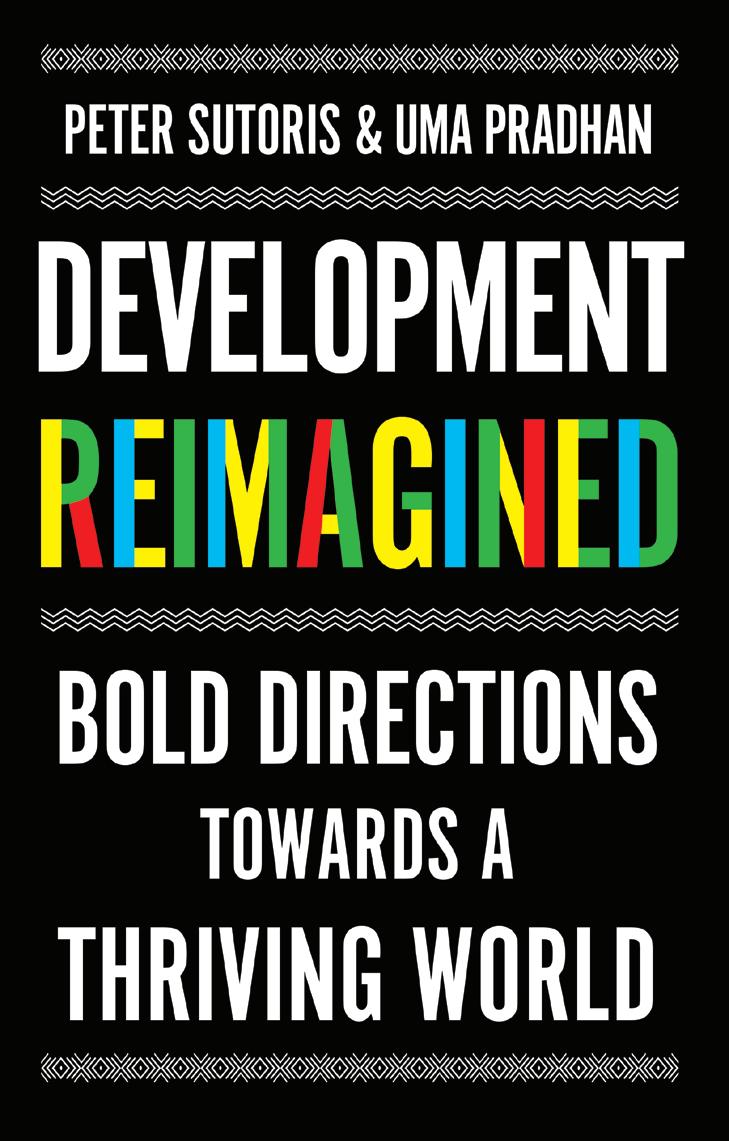

January 2025
9781911723134
216mm x 138mm
264pp
£25.00 Hardback Development / Sociology World rights
Peter Sutoris is Lecturer in Climate and Development at the University of Leeds, and the author of Visions of Development and Educating for the Anthropocene. Uma Pradhan is Lecturer in Education and International Development at University College London, and the author of Simultaneous Identities: Language, Education and the Nepali Nation.
Can development remake itself for today’s world? To do so, it must shed its colonial baggage, embrace diverse voices and prioritise genuine sustainability.
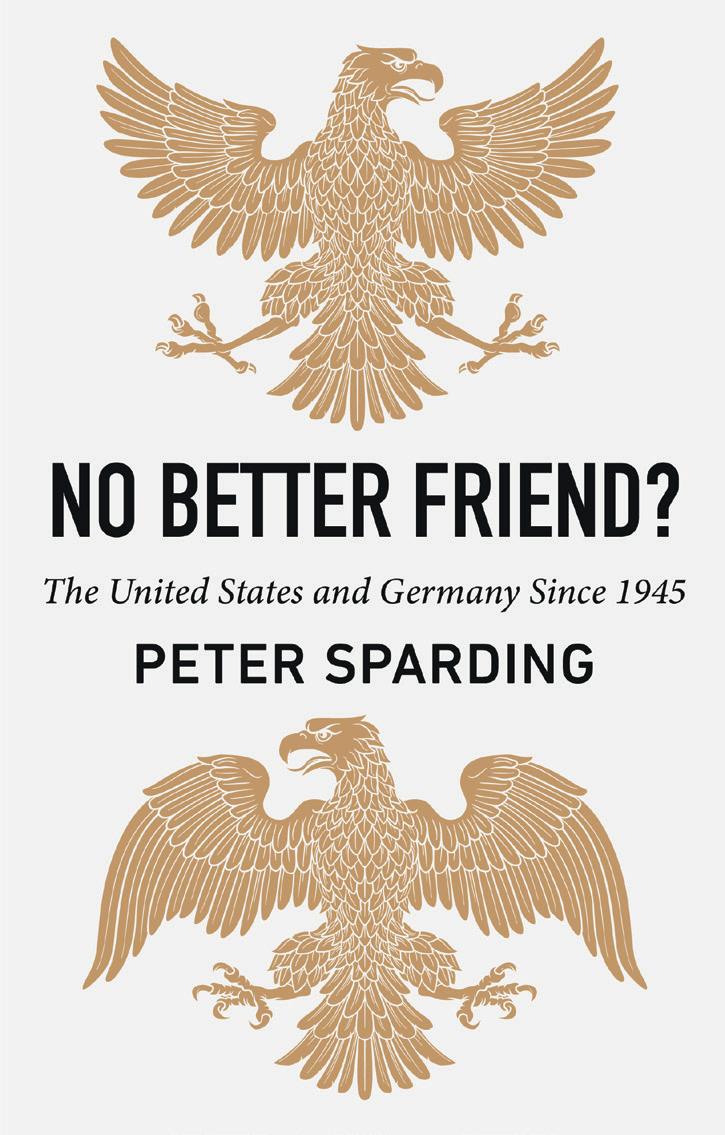

October 2024
9781911723714
216mm x 138mm
256pp
£45.00 Hardback History / International Relations / Geopolitics World rights
The German-American relationship is the decisive transatlantic dynamic of our time. Long seen as one of the most stable connections between Europe and America thanks to its well-defined Cold War structure and hierarchy, relations between Washington and Berlin have become much more volatile in the twenty-first century— and are playing an increasingly pivotal role in determining the degree to which Europe and the United States will be able to shape a rapidly changing world order.
Stabilising this uniquely complicated relationship will be no easy feat. At times more closely aligned politically, and more intertwined economically, than any other transatlantic pair, since the end of the Cold War these republics have seen their relations characterised by frequent diplomatic, cultural and philosophical clashes and misunderstandings, and a trail of disappointed expectations.
An incisive study of one of the world’s most important, and rapidly complexifying, international partnerships.
Peter Sparding examines the long history between the two countries and their peoples; the narratives and perceptions harboured by each nation concerning the other; and the evolution of diplomatic, economic and security ties. Appraising the complicated interplay between Germany and the United States vis-à-vis a rising China, and the domestic challenges facing both countries, his book offers an outlook on how this all-important relationship might function going forward.
Peter Sparding has written about and analysed U.S.–Germany relations and transatlantic economic and foreign policy ties for two decades. He has been a fellow with the German Marshall Fund of the United States and has lived, worked and studied in Washington D.C., Berlin, Copenhagen and Kansas City.
When President George H.W. Bush and General Secretary Mikhail Gorbachev convened in Malta in December 1989, superpower contestation gave way to a new era of US unipolarity. In Africa, the Cold War had already ended. The Soviet Union had abandoned its Marxist-Leninist client states, and Cuban forces were leaving Angola. Yet, just five years later, Washington’s hegemonic aspirations in Africa seemed quixotic at best and delusional at worst.
US military defeat in Somalia and the 1994 Rwandan Genocide both highlighted the absence of American grand strategy. Over the next quarter-century, the US ceded its economic primacy in Africa to China and was relegated to a spectator role in key security crises. Could the US have forestalled the continent’s embrace of multipolarity through consistent engagement and a firm break from Cold War thinking? And is the crumbling of US power there reversible?
Rudderless Superpower addresses these questions through a meticulous chronological examination of US policy in Africa since the 1990s. In a break from traditional accounts revolving around crisis moments and leadership at the White House, Ramani contends that the perpetuation of Cold War–era mistakes and diplomatic failures placed US influence in Africa on a path of inexorable decline.
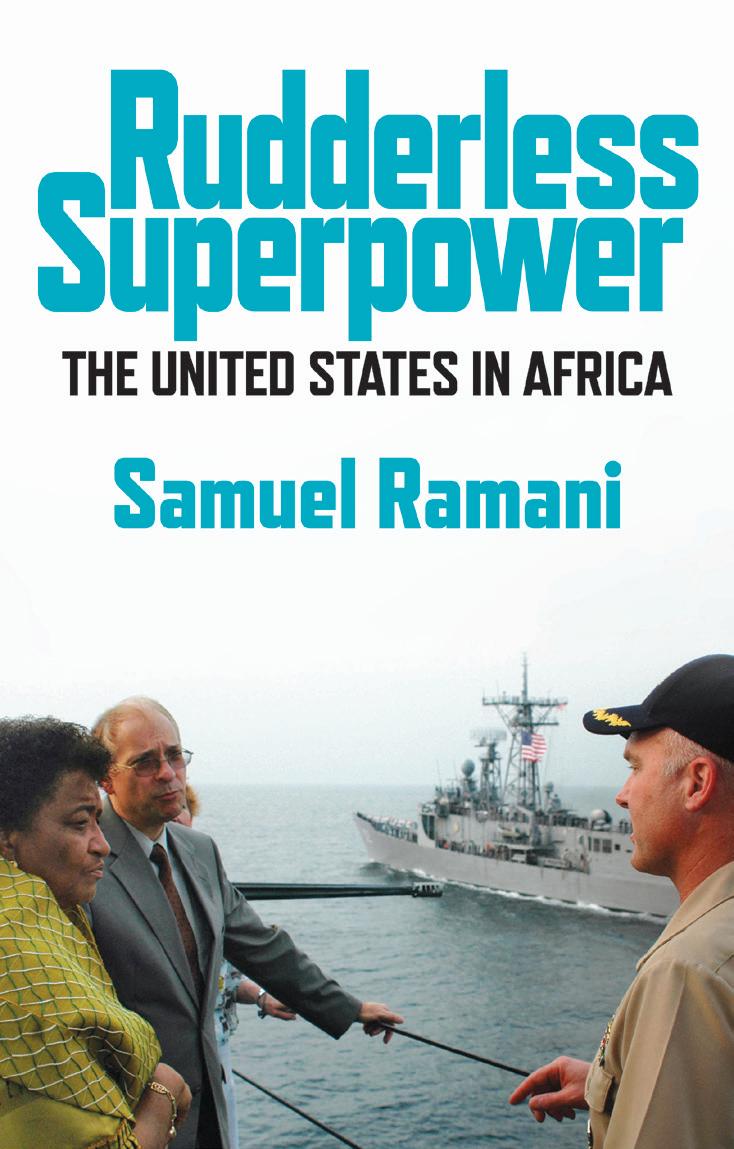

November 2024
9781911723721
216mm x 138mm
320pp
£37.50 Hardback
International Relations / Africa / Geopolitics World rights
Samuel Ramani is Associate Fellow at London’s Royal United Services Institute. The author of Putin’s War on Ukraine and Russia in Africa (both published by Hurst), Samuel regularly advises the US and UK governments on security issues relating to Africa, and contributes to Foreign Policy, CNN and the BBC.
An authoritative appraisal of US policy in Africa since the end of the Cold War, highlighting illfated interventions and a damaging withdrawal from strategic vision.
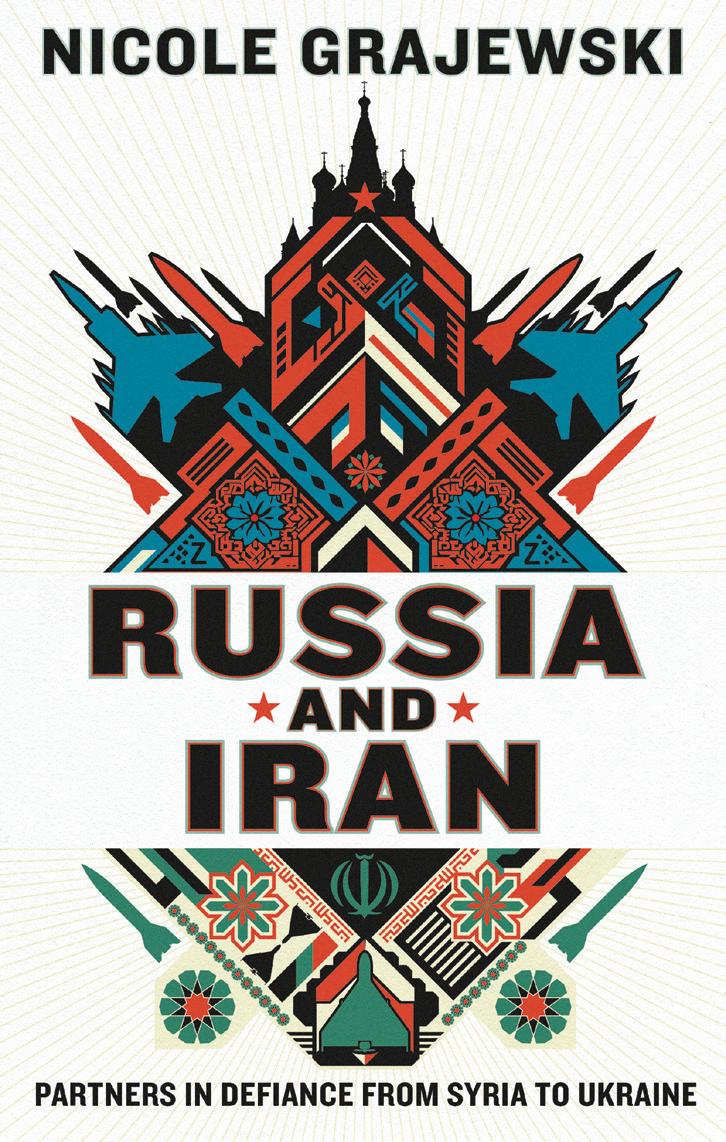

August 2024
9781911723738
216mm x 138mm 368pp
£35.00 Hardback
International Relations / Russia / Middle East World rights
In the series
NEW PERSPECTIVES ON EASTERN EUROPE & EURASIA
Edited by Dr Ben Noble

Charts the evolution of the Russia–Iran relationship in the twenty-first century, from tenuous alignment to robust partnership.
Vladimir Putin’s full-scale invasion of Ukraine in 2022 has cast a spotlight on Russia’s newly sturdy partnership with Iran. Moscow looked to Tehran for drones and ammunition to fuel its so-called ‘special military operation’, and Iran’s support for Russia’s war reflects a decade-long strengthening of Russo-Iranian ties, beginning with the 2011 outbreak of the Syrian Civil War.
Despite a relationship historically marred by mistrust and unmet expectations, the two regimes have worked together to promote their common interests in Syria, where battlefield coordination soon developed into much deeper political alignment. Drawing on extensive Russian and Persian primary sources, and interviews with elites from both countries, Nicole Grajewski uncovers the drivers of ever-closer cooperation between the Kremlin and the Islamic Republic. Detailing the internal structures, shared anxieties and broader ambitions underpinning this alignment, she explores the genesis of Russia and Iran’s mutual antagonism towards the Western-led global order; the impact of deep-seated leadership concerns over regime security and domestic protests; and the future trajectory of the partnership within the larger world order.
Examining both military dynamics and economic endeavours, as well as elaborate sanctions evasion schemes and collaboration within international organisations, this is the definitive account of contemporary Russia–Iran relations.
Nicole Grajewski is Fellow in the Nuclear Policy Program at the Carnegie Endowment for International Peace, and Associate Researcher with the Belfer Center’s Project on Managing the Atom, Harvard Kennedy School of Government. She received her PhD and MPhil from the University of Oxford. She speaks Russian, Persian and French.
The future of Europe as a community of democratic states is deeply uncertain. The European Union, founded to promote ‘ever closer’ integration, aims nominally for peaceful, prosperous cooperation. But this ideal has been battered by a series of bruising crises, and now by war.
Protecting Democracy in Europe examines how, in this brave new world, the EU can and must safeguard democratic governance within its member states. Reviewing the Union’s past responses, Tom Theuns demonstrates that its existing laws and policies are normatively and expressively incoherent. Its failure to defend democratic values is unsurprising: the EU’s existing toolbox is based on an impoverished conception of democracy, and runs counter to its fundamental principles. Close attention to speeches by European Commissioners shows that they see democracy in a technical and legalistic way. This perspective— ‘democracy without politics’—is easy for wouldbe autocrats to exploit.
To protect democracy in Europe, Theuns argues, the EU must urgently correct policies that make it complicit in democratic backsliding. It must contain autocratic influences (within the strict limits of its political authority). And it must cultivate pluralist democracy within its constituent countries. But where this fails, he concludes, autocratic members should be expelled.
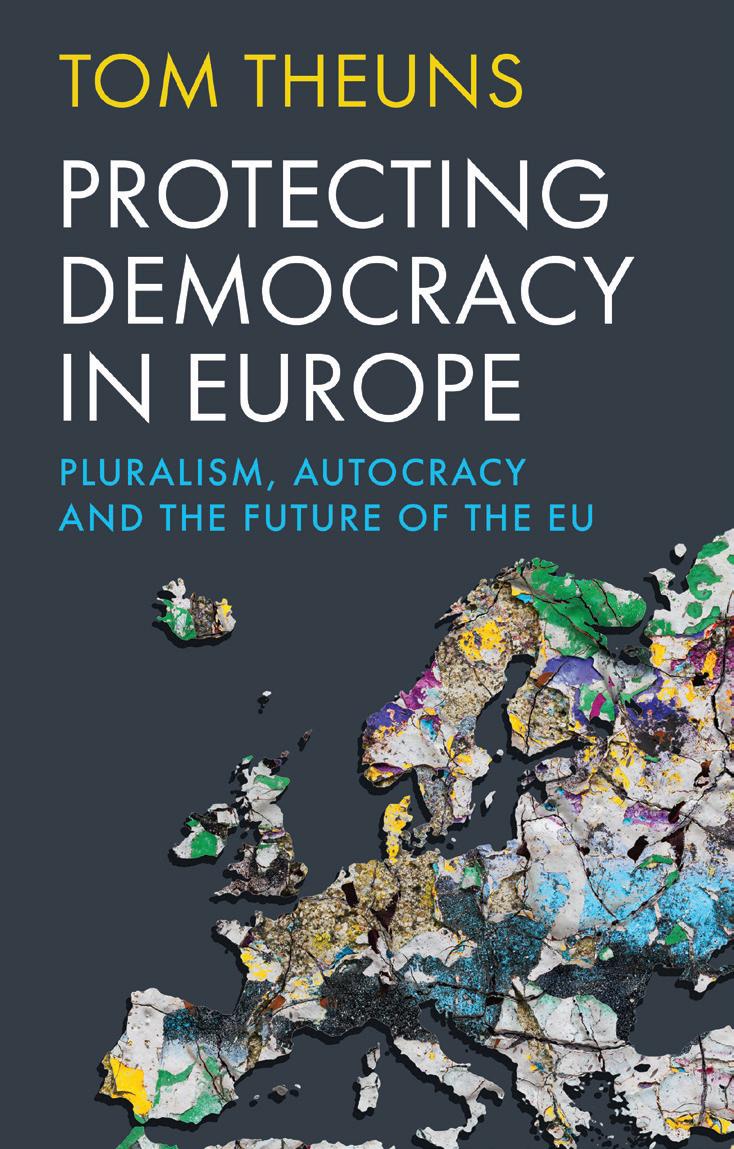

November 2024
9781911723745
216mm x 138mm
336pp
£25.00 Hardback
Politics / Europe World rights
Tom Theuns is Senior Assistant Professor of Political Theory and European Politics at Leiden University’s Institute of Political Science, and Associate Researcher at Sciences Po in Paris. He has published widely, including in American Political Science Review, the Journal of Common Market Studies and the Journal of European Integration.
Why has the European Union failed to combat rising authoritarianism within its own ranks? And how can it defend democratic governance inside member countries?
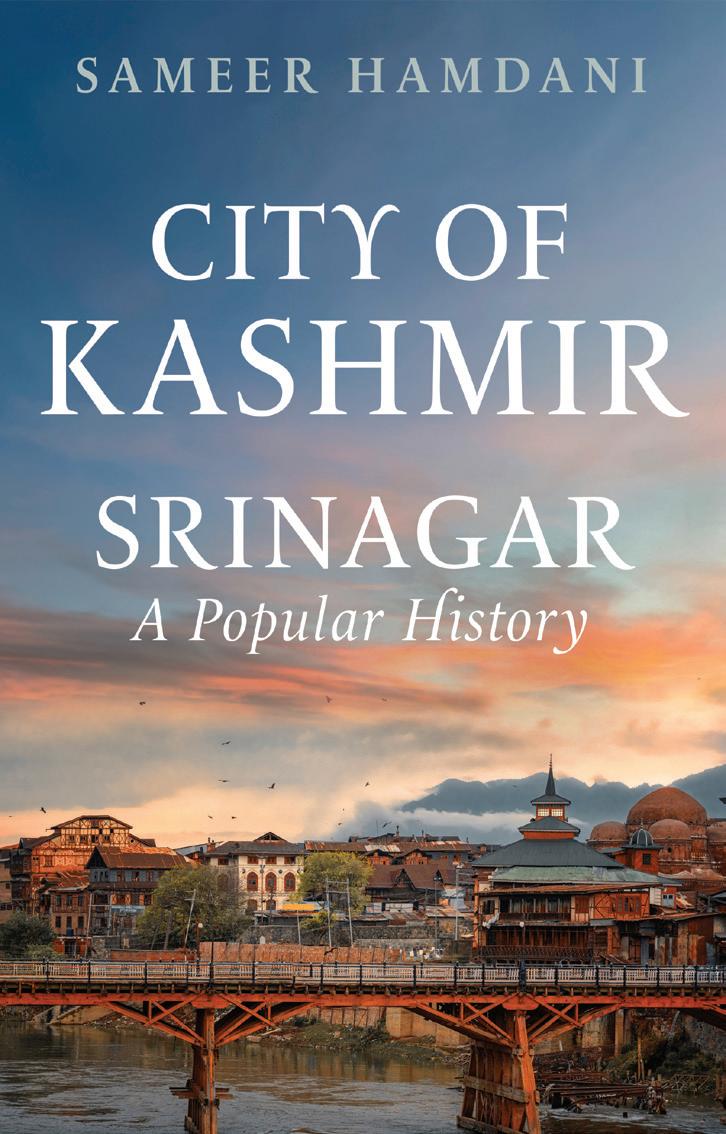

October 2024
9781911723769
216mm x 138mm
288pp
£30.00 Hardback
History
World rights excluding South Asia
City of Kashmir offers readers a journey into the 2,000-year history of Srinagar, exploring its written history, legends and oral traditions to take a living pulse. In exploring the city’s geography, it maps the daily rituals of life and the accompanying material culture, as well as the crafts for which Srinagar is justly famed worldwide. Based on twenty years’ research in Srinagar as a heritage consultant, Sameer Hamdani’s narrative is shaped and populated by glimpses of the historical built environment and other rich personal reflections, as well as selected translations of Sanskrit, Persian and Kashmiri poetry from the medieval and early modern periods.
Hamdani provides a detailed overview of the origin and development of Srinagar on a scale never previously attempted, covering the entirety of the pre-Muslim and Muslim eras in medieval Kashmir, with a focus on the cultural life of the city. Richly illustrated with drawings, sketches and other images, this inviting book will be a timely addition to our expanding knowledge of regional cultures across South Asia, especially as witnessed through their material production and legacies.
A vibrant tapestry of Srinagar’s rich historical and cultural heritage.
Sameer Hamdani is an architectural historian and conservation specialist for the Aga Khan Foundation, Srinagar. His previous books include Shi’ism in Kashmir: A History of Sunni–Shia Rivalry and Reconciliation and The Syncretic Traditions of Islamic Religious Architecture of Kashmir.
In a struggle between David and Goliath, the giant is always predicted to win. But the Biblical story’s power comes from the reverse outcome: the smaller man triumphs. Over the past fifty years, the same has been true in business.
Large companies, with their existing customers, weighty war chests, powerful R&D programmes and formidable acquisitions teams, have been expected to develop original ideas—or buy them from competitors. Instead, start-ups, funded by venture capital, have unsettled the incumbents and transformed the world. From Tesla in cars to SpaceX in rockets; from TikTok in social media to Google in search engines; and from Amazon in retail to Uber in transportation, almost all of the innovative products and services now dominating our lives came from entrepreneurs with bold ideas, allied with investors who believed in them.
The last half-century may have been an adversarial battle between David and Goliath, but the next will be increasingly about their partnership. The Innovation Paradox reveals that the winners in the global economy—whether states, companies or individuals—will be those who can navigate the liminal space between the corporation, with its power for incremental change, and the capitalinfused start-up, able to disrupt the status quo.
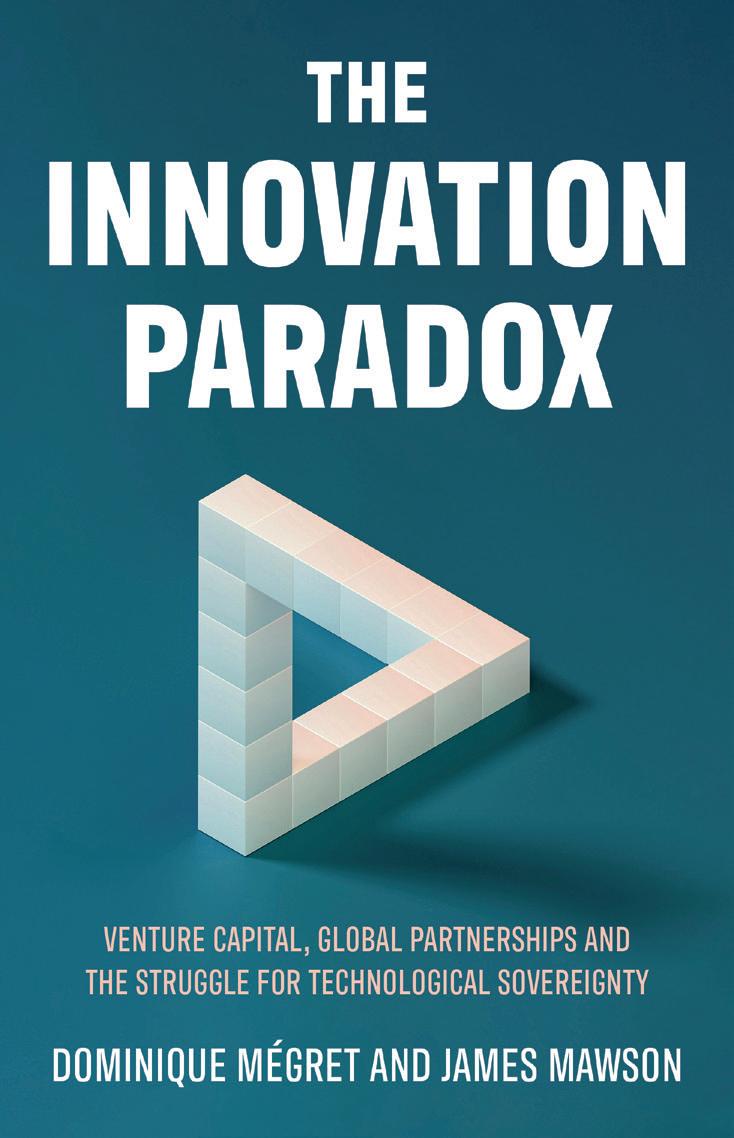

October 2024
9781911723813
216mm x 138mm
264pp
£35.00 Hardback Business World rights
Dominique Mégret is Head of Swisscom Ventures and a board member of Ecorobotix, having spent over a decade as a venture capitalist. He is the author of Deeptech Nation James Mawson was editor of Private Equity News, before launching Global Corporate Venturing in 2010 and Global University Venturing in 2012.
Explains how, against the odds, pioneering start-ups have taken on established firms and revolutionised global commerce—with huge implications for the future of business.
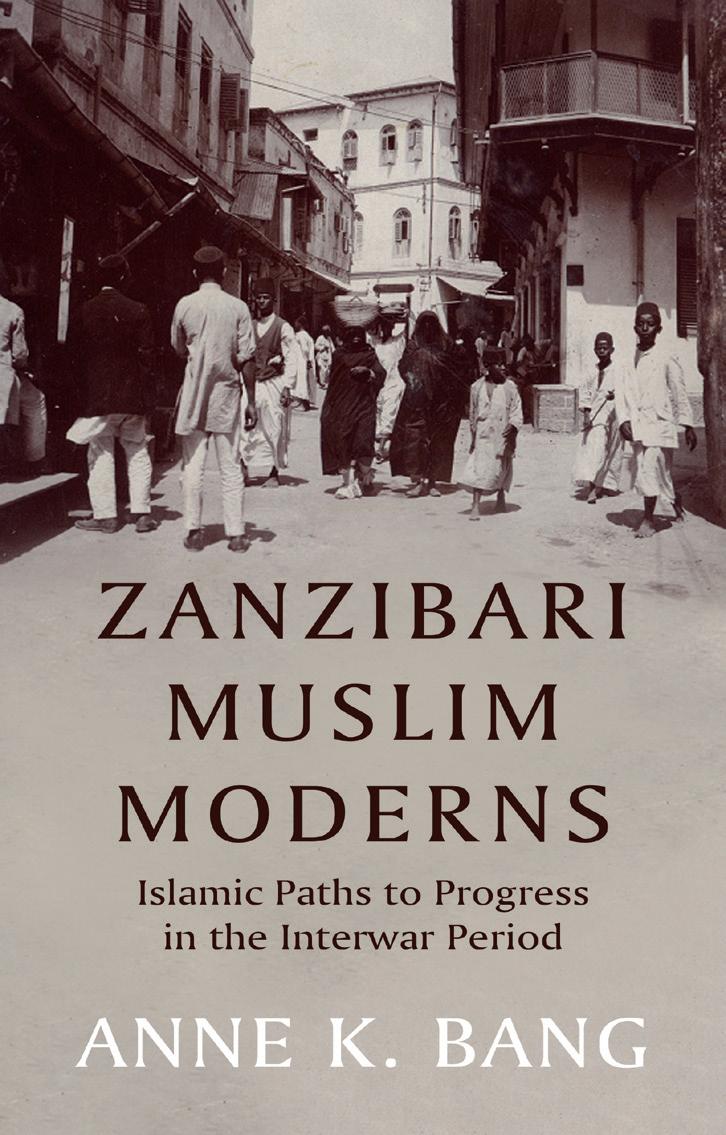

September 2024
9781911723820
216mm x 138mm
256pp
£45.00 Hardback
Islamic Studies / Africa World rights
ANNE K. BANGZanzibari Muslim Moderns is a historical study of Zanzibar during the interwar years. This was a period marked by rapid intellectual and social change in the Muslim world, when ideas of Islamic progress and development were hotly debated. How did this process play out in Zanzibar?
Reveals how a generation of Muslim scholars, intellectuals and civil servants adapted and adopted ideas of modernity in colonial interwar Zanzibar.
Based on a wide range of sources—Islamic and colonial, private and public—Anne K. Bang examines how these concepts were received and promoted on the island, arguing that a new ideal emerged in its intellectual arena: the Muslim modern. Tracing the influences that shaped the outlook of this new figure, Bang draws lines to Islamic modernists in the Middle East, to local Sufi teachings, and to the recently founded state of Saudi Arabia. She presents the activities of the Muslim modern in the colonial employment system, as a contributor to international debates, as an activist in the community, and more. She also explores the formation of numerous faithbased associations during this period, as well as the views of the Muslim modern on everything from funerary practices and Mawlid celebrations to reading habits. A recurring theme throughout is the question with which many Muslim moderns were confronted: who should implement development? And for whom?
Anne K. Bang is Professor of African Islamic History at the University of Bergen. She has published widely on Islamic intellectual exchanges in the Indian Ocean, and particularly on East Africa. She has also led several projects to bring the scriptural sources of this history to wider attention.
Drawing on her experience as a United Nations mediator and a senior American diplomat, Stephanie Williams provides a first-hand examination of post-Qaddafi Libya. Using concrete examples from her experience in the country, Williams analyses the underlying drivers of the Libyan conflict, as well as the motivations of the international actors and the various Libyan protagonists. She bears witness to the horrific effect of General Haftar’s attack on Tripoli in 2019, how it tore apart a UN peace process, and how she worked alongside UN envoy Ghassan Salamé to reassemble some semblance of an international consensus under the Berlin Process and accompanying intra-Libyan tracks: military, economic and political.
Williams recounts her leadership of the UN mediation during the Covid pandemic, adopting new technologies and blending hybrid and physical meetings to produce the October 2020 ceasefire agreement, as well as progress on the economic track and an inclusive political agreement. She also lays out the pernicious effect of new media on peacemaking, and how disinformation and hate speech have exacerbated Libya’s fragmentation. Finally, Williams offers ideas on how to break Libya’s cycle of division and dysfunction to meet the longstanding aspirations of the people to live in peace and dignity.
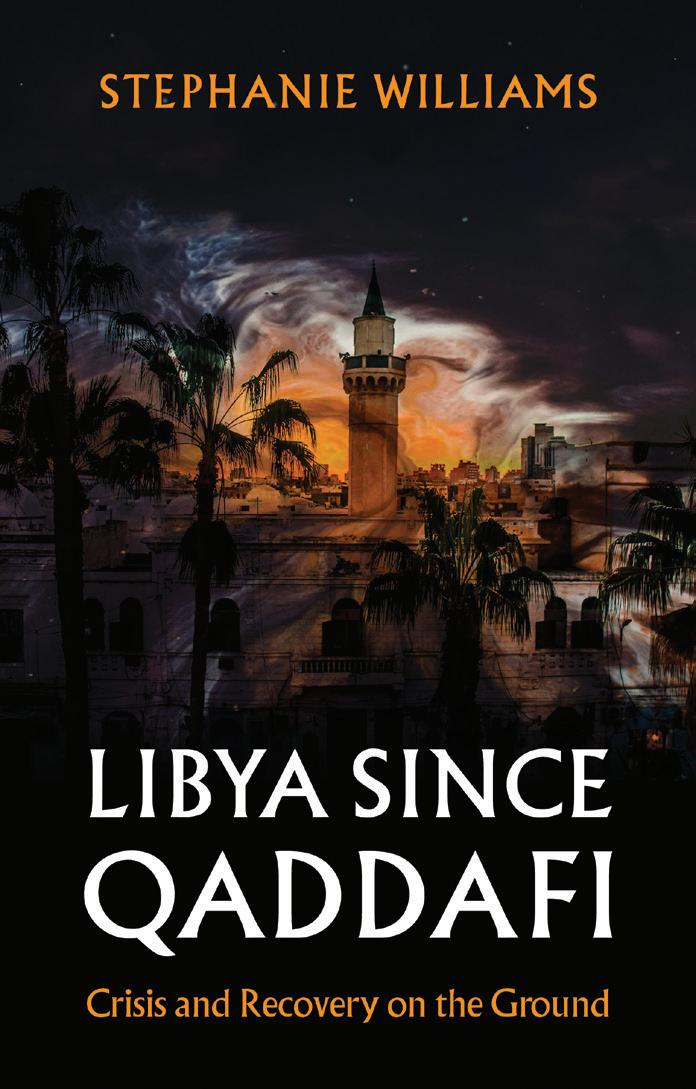

January 2025
9781911723806
216mm x 138mm
320pp
£45.00 Hardback
Development / Peace & Conflict Studies
World rights
Stephanie Williams is an experienced international mediator serving with the UN in Libya, where she produced a nation-wide ceasefire agreement and a political agreement, using hybrid technologies to build a more inclusive process. A former US diplomat, Williams has an extensive background in the Middle East and North Africa region.
An inside account of conflict, collapse and innovative approaches to reconstruction in Libya’s challenging post-2011 landscape.
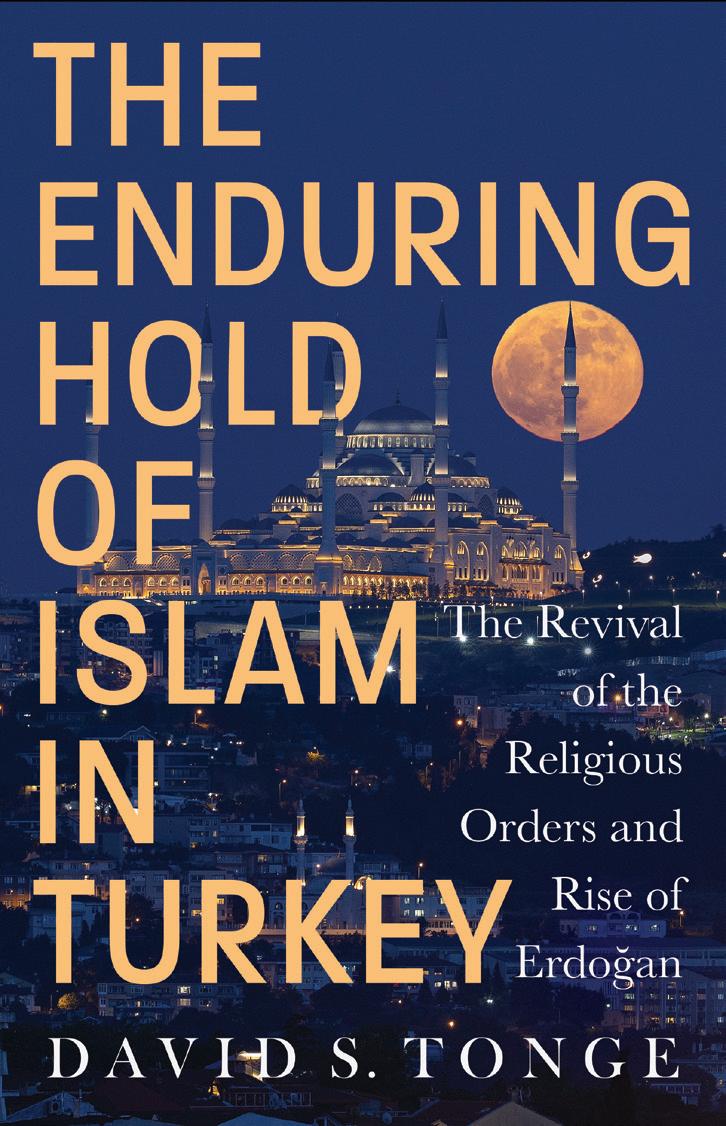

September 2024
9781911723837
216mm x 138mm
384pp
£45.00 Hardback
Islamic Studies
World rights
A new history of modern Turkey, focussing on its fifty-year retreat from Kemalist secularism.
DAVID S. TONGEThis is the first account in English of how Islamic religious orders dating back to Ottoman times have risen to dominate and define the future of Turkey, Europe’s awkward neighbour and the major power in the Eastern Mediterranean.
Given its determined programme of secularising the people both under and after the Attatürk regime, Turkey is often projected as a model for the compatibility of Islam with parliamentary democracy. In this absorbing book, journalist and writer David S. Tonge reveals the limitations of that secularisation, and its progressive reversal, in what continues to be a profoundly religious country. He describes how Muslim Turks’ religious identity has been taken over by branches of one of Islam’s great religious orders, the Naqshbandis, whose profoundly anti-Western ethos was honed by British and French colonial incursions into the heartland of their faith.
Tonge’s history offers a salutary alternative to the wishful narrative developed by Western chancelleries during the Cold War, one which viewed Turkey as a westernising democracy. The revival of both Turkish nationalism and Islam helped President Erdoğ an’s rise to power, and will shape the regime that succeeds him—illuminating and understanding Turkey’s realities of faith and religious politics has never been more important.
David S. Tonge has lived half of his life in Turkey. A scholar of Magdalene College, University of Cambridge, he reported from Ankara and Athens for the BBC, Guardian and Observer, then from London as the Financial Times’ diplomatic correspondent. The author of The Kremlin’s Confidant, he grows citrus and olives.
‘Dazzling prose … arresting, essential, devastating.’
— The Spectator
‘A timely intervention at a dangerous moment … both the times and the subject demand anger, argument and urgency. Malevolent Republic supplies all three and is all the better for it.’
— The Observer
‘Written with passion and savagery, this is a polemical and highly readable short history of modern India from Indira Gandhi to Narendra Modi.’ — Gideon Rachman, Financial Times
‘Eloquent on the subject of religious tolerance, communal harmony and human decency, all of which appear to be in harrowingly short supply among the acolytes who surround Modi.’
— The Times
‘Precise and sharp … takes readers on a terrifying and yet illuminating journey through the rapidly transforming political, social and religious landscape of Modi’s India.’ — The Times Literary Supplement
‘One of the most thoughtful and thorough journalists writing today … a rare voice … comment[ing] on global affairs from a truly comparative perspective.’ — Amitav Ghosh

K. S. Komireddi, an essayist, international journalist and public speaker, has contributed to the BBC, CNN, The New York Times, The Guardian, The Washington Post, the Daily Mail, The Economist, The Spectator and Foreign Policy, among others. This is his first book.
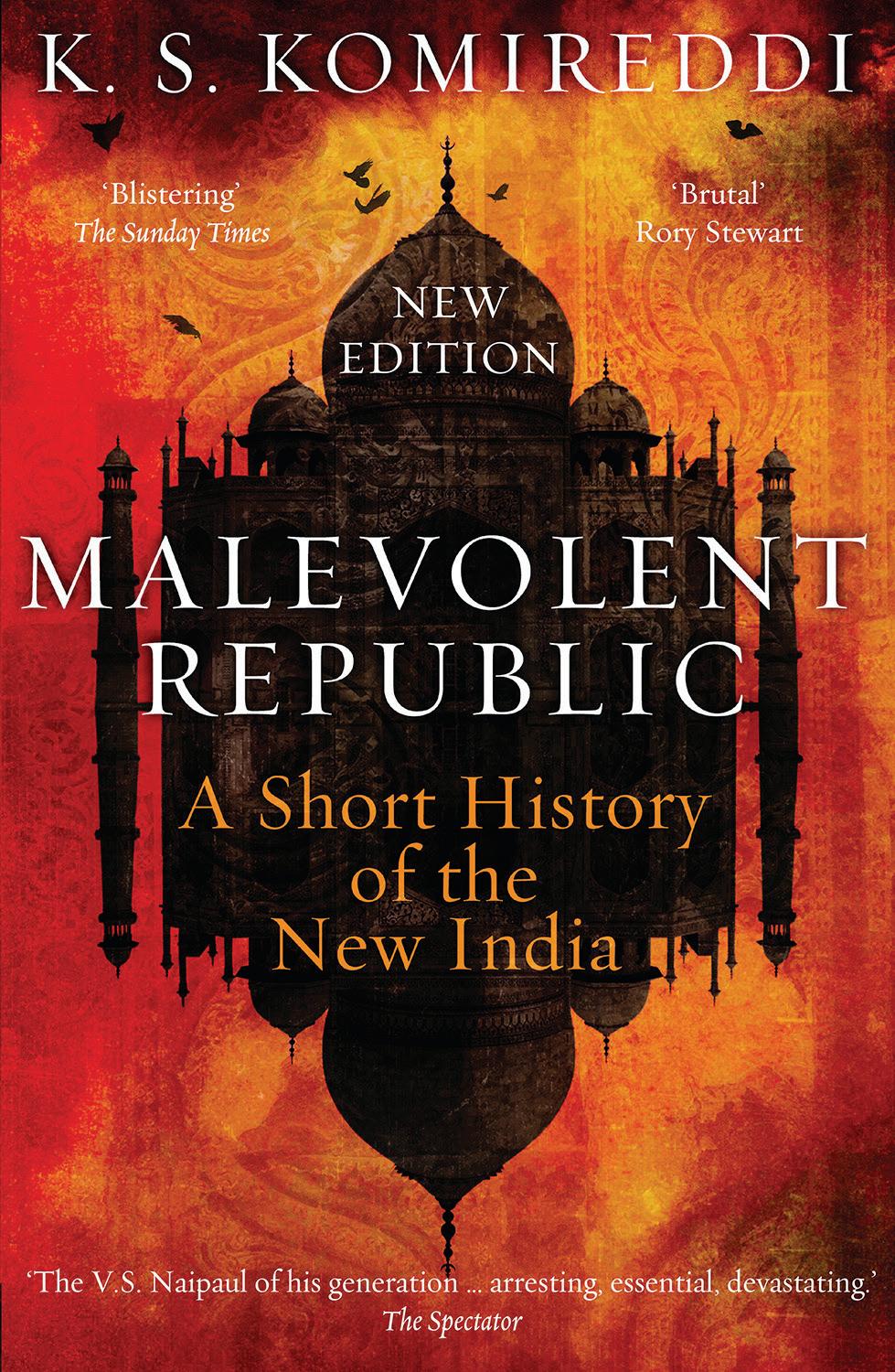

March 2024
9781911723288
216mm x 138mm
296pp
£14.99 Paperback
Politics / South Asian Studies
World rights excluding South Asia
After decades of imperfect secularism under an often corrupt establishment, Nehru’s diverse republic has yielded to Hindu nationalism, collapsing under the weight of its contradictions.


August 2024
9781911723882
216mm x 138mm
448pp, 88 colour illus
£15.99 Paperback Middle East Studies / Memoir World rights
NEW EDITION
As featured in The Guardian Long Read
‘Celebrates the power of resilience and endurance.’ — The Times Literary Supplement
‘A tour de force … beautifully written … this book eloquently conveys the urgency of transforming the toxic status quo into conditions that allow everyone to thrive as equals.’ — The Palestine Chronicle
‘A vivid portrait of life for Palestinians in Israel in the 1950s and 1960s.’ — Middle East Eye
‘A gripping account of one family’s decades-long personal and political struggle to return to their true homeland.’ — New Internationalist
‘At times reads like a thriller … a unique [story] which [Jiryis] negotiates with intelligence and eloquence … illuminating profound and painful subjects about home and belonging.’ — Raja Shehadeh
A moving exploration of belonging in a contested homeland, from a Palestinian writer and citizen of Israel.
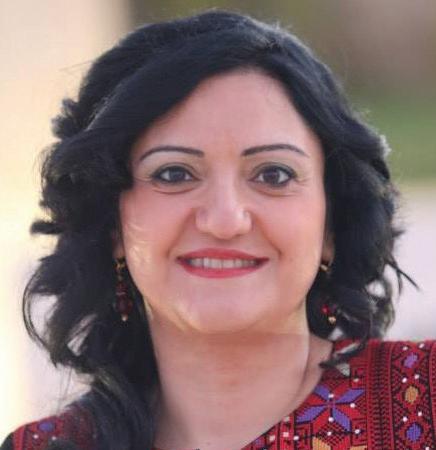
Fida Jiryis is a Palestinian writer and editor who has written on life as a Palestinian in Israel and the West Bank. She contributed to Kingdom of Olives and Ash, a Washington Post bestseller on fifty years of Israeli occupation, and Amputated Tongue, a Hebrew-language anthology of Palestinian literature.
‘[Ramani’s] encyclopedic descriptions … yield interesting details and … solid tactical analysis.’
— The New York Times
‘Looks behind the headlines to determine the motivations for the invasion and the likely path forward. Ramani is convincing in his view that the war marks a seismic shift in the geopolitical landscape. Clear-minded and authoritative, this book is a thorough analysis of how Putin’s gambit fits into the big picture.’ — Kirkus Reviews
‘An important, well-referenced book that covers the details and impact of the Russian invasion of Ukraine in 2022.’ — CHOICE
‘Unpicks Putin’s concocted rationales for invading Ukraine … [and] dissects Russia’s strategic military failings.’ — Labour Hub
‘An open-ended chronicle of a very short, but significant, phase in the Russian-Ukrainian confrontation.’ — The Russian Review
‘Explains clearly the vital importance of [this] war for the future of Russia itself.’ — Keir Giles, Director, Conflict Studies Research Centre
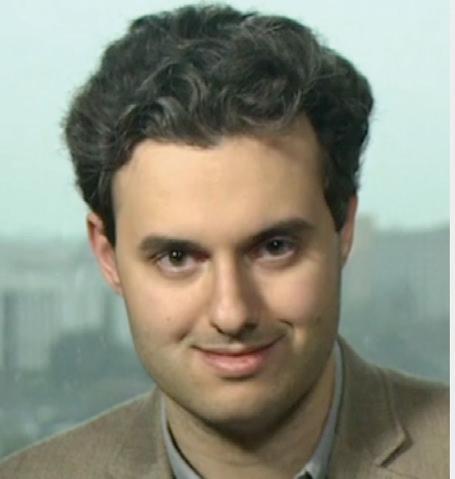
Samuel Ramani is Associate Fellow at London’s Royal United Services Institute. The author of Russia in Africa and Rudderless Superpower (both published by Hurst), Samuel regularly advises the US and UK governments on international security issues, and contributes to Foreign Policy, CNN and the BBC.
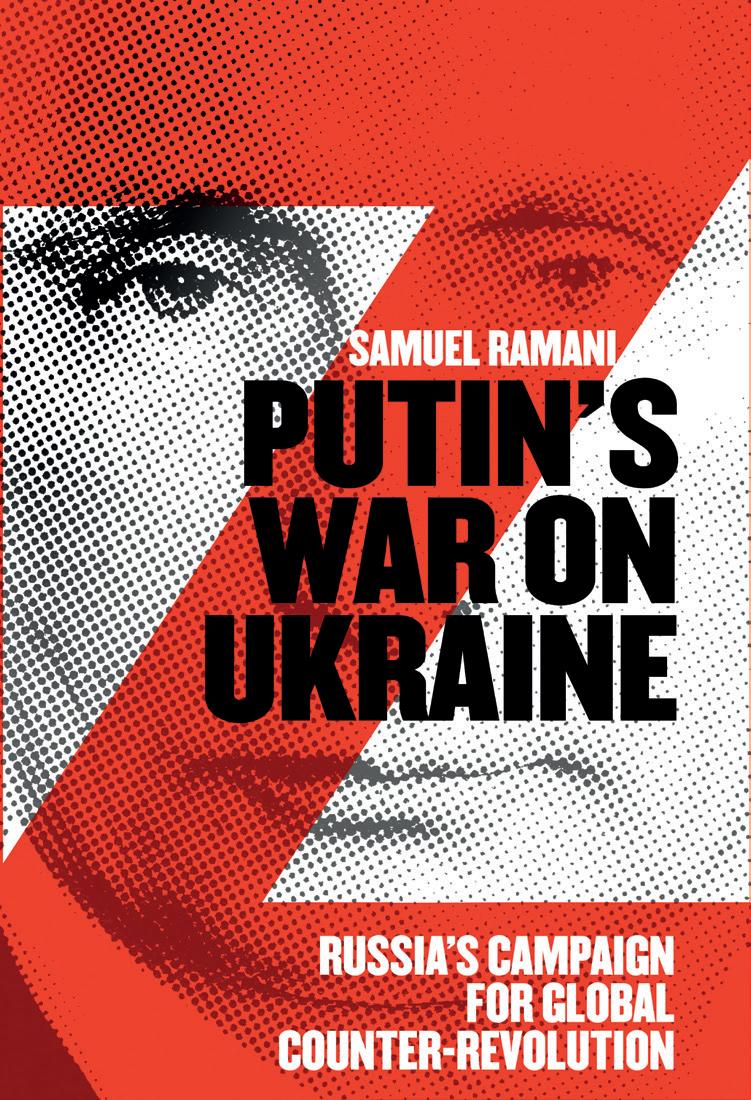

October 2024
9781805260158
198mm x 129mm 624pp
£17.99 Paperback War Studies / International Relations World rights